
See pages 40-42 for listings of New Classes and Locations for the ComingYear!


oversight are intrinsic to their roles as par ents. Parents also know that just because a higher cost of living. There is also an emphasis on marriage, such that young




See pages 40-42 for listings of New Classes and Locations for the ComingYear!


oversight are intrinsic to their roles as par ents. Parents also know that just because a higher cost of living. There is also an emphasis on marriage, such that young


HAVDALA EARLY CANDLES HAVDALA EARLY CANDLES 7:23 5:29 6:11 7:32 5:37 6:20
Yerushalayim/Maale Adumim 7:25 5:32 6:29 7:34 5:40 6:38
Aza Area (Netivot, Sderot et al) 7:24
Mond/Herzliya/K.Saba
6:37
Be’er Sheva
JERUSALEM
JERUSALEM
Rabbeinu Tam (Jerusalem): Re’eh 8:12 PM • Ki Teitzei 8:03 PM
All Times According to MyZmanim (20 mins before Sunset in most Cities; 40 mins in Yerushalyim and Petach Tikva; 30 mins in Tzfat and Haifa)
All Times According to MyZmanim (20 mins before Sunset in most Cities; 40 mins in Yerushalyim and Petach Tikva; 30 mins in Tzfat and Haifa) Daf Yomi: Kidushin 69 Daf Yomi: Bava Basra 74
OU Kashrut NCSY Jewish Action JLIC NJCD / Yachad / Our Way OU West Coast OU Press Synagogue/Community Services OU Advocacy OU Israel
MITCHEL R. AEDER, PRESIDENT OF THE ORTHODOX UNION Yehuda Neuberger, Chairman of the Board, Orthodox Union | Dr. Josh Penn, OU Kashrus Commission
RABBI MOSHE HAUER, EXECUTIVE VICE PRESIDENT | RABBI JOSHUA M. JOSEPH, ED.D. EXECUTIVE VICE PRESIDENT & CHIEF OPERATING OFFICER Rabbi Dr. Tzvi Hersh Weinreb, Exec. V.P. Emeritus OU KOSHER: Rabbi Menachem Genack, CEO/Rabbinic Administrator OU Kosher | Rabbi Moshe Elefant, COO/Executive Rabbinic Coordinator ISRAEL: Rabbi Yissachar Dov Krakowski, Rabbinic Administrator | Rabbi Ezra Friedman, The Gustave and Carol Jacobs Center for Kashrut Education/ Deputy Rabbinic Administrator Headquarters: 40 Rector St. 4th floor, New York, NY 10006 212-563-4000 website: www.ou.org
Editor Emeritus: Phil Chernofsky
Editor: Rabbi Aaron Goldscheider | aarong@ouisrael.org
Advertising: Ita Rochel | 02-5609125 or ttads@ouisrael.org Website: www.torahtidbits.com
Not getting enough TTs? Too many? None at all? Contact our DISTRIBUTION 050-577-2111 • ttdist@ouisrael.org
Ranges 11 days Wed–Shabbat
Ranges 11 days Wednesday–Shabbat
Oct x–x / x–x Cheshvan
Sept. 4 - 14 / 1 - 11 Elul
Earliest Tallit and Tefillin x:xx–x:xx Sunrise x:xx–x:xx
Earliest Tallit and Tefillin 5:25–5:31 Sunrise 6:16–6:22
Sof Zman Kriat Shema
Sof Zman Kriat Shema 9:27–9:28
Magen Avraham 8:50–8:51
Sof Zman Tefila x:xx-x:xx
Sof Zman Tefila 10:30
(According to the Gra and Baal HaTanya)
Chatzot (Halachic Noon) 12:37–12:34
Mincha Gedola (Earliest Mincha) 1:09–1:05
Plag Mincha 5:39–5:28
(According to the Gra and Baal HaTanya) Chatzot (Halachic Noon) x:xx–x:xx Mincha Gedola (Earliest Mincha) x:xx–x:xx Plag Mincha x:xx–x:xx Sunset (Including Elevation) x:xx–x:xx
Sunset (Including Elevation) 7:03–6:50
Seymour J. Abrams • Orthodox Union Jerusalem World Center • Avrom Silver Jerusalem College for Adults • Wolinetz Family Shul • Makom BaLev • Birthright • Yachad • NCSY in Israel • JLIC in Israel • Camp Dror • Pearl & Harold M. Jacobs ZULA Outreach Center • The Jack Gindi Oraita Program • OU Israel Kashrut
STUART HERSHKOWITZ, PRESIDENT OU ISRAEL Zvi Sand / Yitzchak Fund: Former Presidents, OU Israel | Rabbi Emanuel Quint z”l, Senior Vice President | Prof. Meni Koslowsky, Vice President VAAD MEMBERS:
Michael Elman | Yonatan Frankel | Yitzchak Fund | Daniella Hellerstein | Stuart Hershkowitz | Jeremy Lustman | Meir Raskas | Atara Reichel | Zvi Sand | Norman Schmutter | Mark Schneider | Esther Williams RABBI AVI BERMAN, EXECUTIVE DIRECTOR, OU ISRAEL
David Katz, CFO, OU Israel | Natan Kandler, COO, OU Israel | Chaim Pelzner, Director of Programs, OU Israel | Rabbi Sam Shor, Director of Programs, OU Israel Center | Rabbi Sholom Gold zt"l, Dean, Avrom Silver Jerusalem College for Adults 22 Keren HaYesod <> POB 1441 <> Jerusalem 9101032 phone: (02) 560 9100 | fax: (02) 561-7432 email: office@ouisrael.org website: www.ouisrael.org
Founders and initial benefactors of the OU Israel Center: George and Ilse Falk a"h
Torah Tidbits and many of the projects of OU Israel are assisted by grants from THE JERUSALEM MUNICIPALITY

OU Israel, Torah Tidbits does not endorse the political or halachic positions of its editor, columnists or advertisers, nor guarantee the quality of advertised services or products. Nor do we endorse the kashrut of hotels, restaurants, caterers or food products that are advertised in TT (except, of course, those under OU-Israel hashgacha). Any "promises" made in ads are the sole responsibility of the advertisers and not that of OU Israel, the OU Israel Center , Torah Tidbits.

RABBI AVI BERMAN EXECUTIVE DIRECTOR, OU ISRAEL ABERMAN@OUISRAEL.ORG
Rabbi Avi Berman Executive Director, OU Israel
OU Israel has hosted many missions to Israel since October 7th, and it has been a privilege to lead many of them and meet so many incredible brothers and sisters who dropped everything to come to Israel. We had missions for OU leadership, Rabbis, Rebbetzins, lay leaders, fathers and sons and more. Many came from North America to Israel literally weeks after October 7th.
It is a tremendous zechut to see the impact of these missions, on several fronts. Being an Israeli who speaks English and is deeply connected to the North American community, as well as being someone who works closely with the youth of this country from up north and down south through OU Israel’s youth programming, I have a unique perspective on what these missions mean in all the varied layers of their impact.
On these missions, Rabbis and Rebbetzins, and men and women from different backgrounds and experiences, came to Israel to see, to listen, and to embrace, the challenges that we are experiencing as the Jewish people in the Land of Israel. These are people who live six thousand miles away. They came to Israel and were shaken to their core. Many broke down in tears, because people they never met before are in horrible pain and grief, going through the toughest experiences of their lives. Their only connection is the simple fact that they are Jewish and part of the same family. I’ve been so inspired to see this.
No less inspirational is hearing from the young people who come to our OU Israel Teen Centers and their advisors and from families who have been evacuated, how touched they themselves were by how many Jews come from overseas and showed them that they care for them. It is truly meaningful to hear this from teenagers as well as from adults. It means so much to them that all these people from New York, Miami, Los Angeles, Chicago, Vancouver, Toronto, and many other places, who took time from their busy schedules and invested a tremendous amount of funds in order to make sure they could embrace, love, and care, for their brothers and sisters who are going through difficult times.
I could go on and on about the effect this has had on soldiers, farmers who have these droves of volunteers show up at their doorstep, and how almost every aspect of life in Israel has been touched by these missions. As I’ve mentioned a few times in this column, these missions to me have truly demonstrated the maxim that Jews are, deep down, “ke’ish echad be’lev echad,” one person with one heart.
I am writing these words from Florida, where I just spent Shabbat in Rabbi Donald and Aliza Bixon’s shul, Beth Israel in Miami Beach. I got to speak to many members of the community. Some came on missions with us and I already knew. Others didn’t come, but saw the effect the trips had on their neighbors and friends. It’s clear to

see how much of a ripple effect these missions had. Everyone, whether they came or not, has been transformed. From the way that people speak about Israel and what is going on here, it is like everyone was there and saw and experienced. The people who come back from these missions are ambassadors, explaining what is going on, and people are listening, empowering their communities to do more and more. It was so wonderful seeing the children here writing letters and drawings for children who are displaced from their homes and for our brave chayalim.
I spoke to them about how crucial it is to invest in our teenagers here in Israel and explained what challenges our teenagers are going through and how vital it is for our OU Israel Teen Centers advisors to be able to continue doing the work we do in order to ensure that every teenager is cared for - whether one that is evacuated from his/her house in the north or south, has a relative currently fighting, knows one of the hostages, or lost someone dear to them. These teenagers are going to be our leaders in a few years; they are our future.
There was one moment on my trip that brought me tremendous pain. Someone sent me a clip of a Jewish comedian who unfortunately decided to make a clip about the missions, mocking them. It was clear to me that this comedian hadn’t been touched by a mission. Had he spent time on IDF bases, visiting injured chayalim , meeting with families of the hostages, speaking to people displaced from their homes, hearing from those who made the ultimate sacrifice and lost loved ones, he never could have made that video. He clearly does not understand the impact that these missions are having.
People know me for my optimism, and to try to focus on seeing the positives happening everywhere. This is a value I try and give over in this column. Yet, some things just aren’t something to laugh at. It is so important for people to come and visit Israel, especially during these difficult times. We want everyone to meet their brothers and sisters dealing with challenges and to help - to connect Jews from all over the world. Even people who cannot come are impacted by those who do, and they write letters, daven, raise funds, and do all sorts of activities to show their love for their Israeli brethren. I try not to criticize my fellow Jews, but sometimes it is necessary to call out something so mistaken. I invite this comedian to come with us, to see what we do, and I know the effect it will have on him, as these missions continue to have on so many others.
Let’s encourage those who are coming. Let us tell those who don’t understand the importance of coming to Israel that they should come and experience the resilience, achdut and strength of the people of Israel, especially during these challenging times, and they should take this message back to North America with them.
As I write these words, we have received the news that the bodies of six of our brothers and sisters taken captive were found. They survived hell for 330 days, and were murdered by Hamas. At the same time, we heard of three policemen who were murdered near Chevron. Nine holy Jews in total. It is so hard in times like these to be far away from Israel, but I see and feel that everyone is with us. I am seeing and hearing the feedback from all the people here in Florida, whether in
Miami Beach, Hollywood, Aventura and other places I visited on this trip. Their hearts are in Israel right now, though they are physically in Florida. The pain they feel is real and close.
In the parsha , we read, “Judges and police officers you shall appoint for yourself in all of your cities.” We, too, must be judges and find every way to judge favorably our fellow Jews and their motivations. God-forbid if we make light of those trying to impact the world in a positive way.
Wishing you all an uplifting and inspiring Shabbat,

Rabbi Avi Berman Executive Director, OU Israel aberman@ouisrael.org
Please join us for a Shiur in memory of
and in memory of the
Thursday 12th September 2024, 7:30pm Given by:
4 Ben Baba Street, San Simon
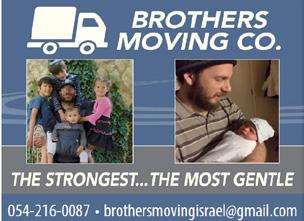










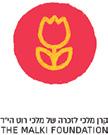

Keren Malki
Honoring the memory of Malka Chana Roth ד”יה 1985-2001, killed in the Sbarro bombing.


OU EXECUTIVE VICE PRESIDENT
Do you have any idea how hard it is for your rabbi to concentrate on his Davening?
Kavana – the maintenance of clear focus during tefillah – is a universal challenge, but at least everyone else is pointed in the right direction. Rabbis, on the other hand, sit on the mizrach vant, the eastern wall, and spend most of davening looking out at the people. As Rambam taught (Hilchot Tefillah 11:4):
“How do the people sit in batei knesset? The elders sit facing the people with their
In loving memory of Eliezer (Larry) Yellin z”l
on his 1st Yahrtzeit
Aliyah L’kever on 8 Elul (Sept. 11)
Meeting at 4:45pm at Har Hamenuchot Parking Lot
Beloved husband of Chava (Evelyn) Yellin
Dear father of Linda Weiss, Sharon Weingarten, Susan Yellin, Deena Fuksbrumer, and the late Judith Yellin a”h Devoted grandfather and great grandfather
back to the heichal (ark, aron hakodesh), while the people sit row after row with each row facing the back of the preceding row such that all the people face the kodesh and the elders.”
The reason for the rabbis on the mizrach wall facing out is understood by some as inspirational, providing the community with an instructive model of prayer; by others (see Rabbeinu Manoach on the Rambam) as disciplinary, inducing good communal behavior under the elders’ watchful eyes; and by others as an expression of respect towards the community, demonstrating that the leaders do not “turn their backs” on the community they serve. Whatever the reason, the result is built-in davening distraction as the rabbis – rather than praying with the exalted image of the holy ark before their eyes – daven facing a roomful of tzarot, unresolved issues and unreturned phone calls.
There is, however, an additional perspective that views this seating arrangement as an opportunity to focus the prayer experience of one who assumes any level of responsibility for the community.
When Yitzchak prayed for Rivkah, the Torah describes him as praying l’nochach ishto, opposite – or facing - his wife (Bereishis 25:21). Radak suggests that he faced her to induce kavana, to be reminded of her challenges and thus focus his prayers appropriately. The elders similarly face
the community during prayer because it is their community’s “issues” that are to be the focus of the elders’ prayers. While individuals bring their own issues – their or their family members’ personal needs and preoccupations - to Hashem, those who bear communal responsibility are expected to be preoccupied with the community’s individual and collective needs and must approach Hashem with those needs on top of their minds. Facing the community does not distract; it induces proper focus.
Our Parsha concludes with the Eglah Arufah ritual to be conducted upon discovery of a murder victim (Devarim 21:1-9). As part of that ritual, the elders of the city declare that they did not spill his blood (21:7). The mishnah (Sotah 9:5) explains that while the elders never topped the list of suspected killers, what they were really saying was that they had been attentive to this person’s needs and had not allowed him to pass through the city without feeding him and providing him with company. Had they done so, the victim’s death would evidently be their responsibility.
That is why the elders of the community sit facing the people and not the holy ark. That is the ultimate reminder that while the rabbis are surely responsible for elevating the community spiritually and for helping them turn to G-d in prayer and study His Torah, their first responsibility is to look out at their people and ensure that they are taken care of, that they will be okay. For the Rav, the people are not a distraction but rather the focus of his life and his tefillah.




could be relaxing in your stunning sea-front property soon... YOU



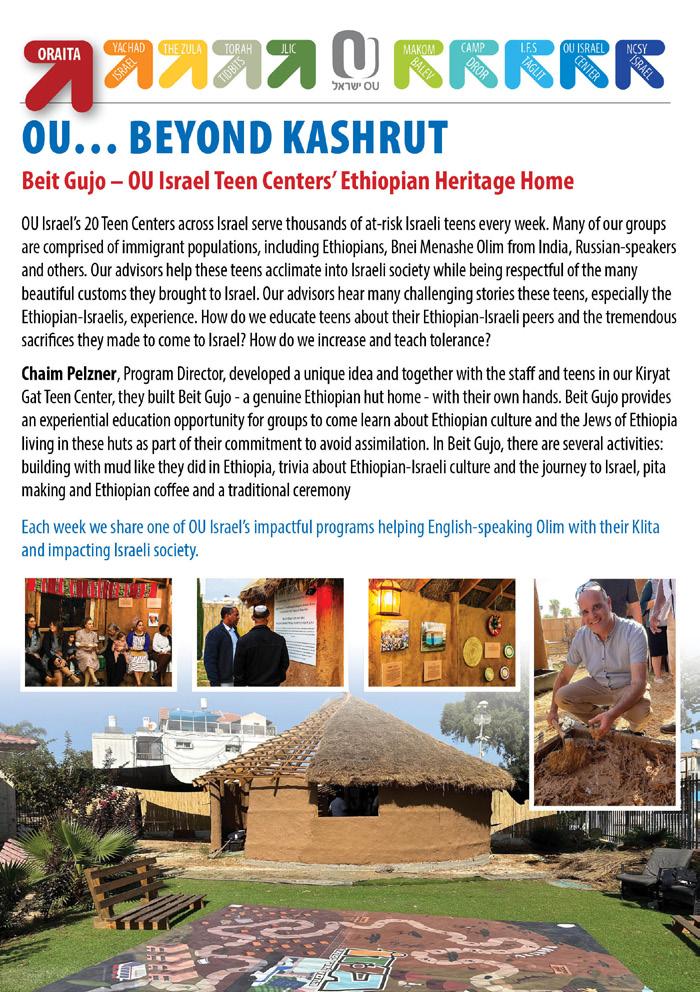
and our next step will be to plant a fruit tree. I never thought of myself as being the agricultural type, but the feeling of settling and planting a portion of Eretz Yisrael, has been truly euphoric. Iy”H, when we plant our tree, and eat the fruits that will grow one day, I think we will be able to truly appreciate that unique Kedusha found in the fruit of Eretz Yisrael!
To conclude, when you buy your Tu B'shvat fruit this year, don’t search for those dried apricots and banana chips imported from Turkey. Rather, head over to the fresh produce and buy yourself some nice juicy Kedusha-filled Jaffa oranges and thank Hashem for bringing you to this land in order , imbibing that Kedusha in every bite that you take!!





RCA Israel Region ALIYA-BY-ALIYA
Aliya-by-Aliya Sedra Summary
RABBI REUVEN TRADBURKS
Rabbi Reuven Tradburks
Parshat Shoftim has 41 mitzvot; it is the 2nd of 3 parshiot that have a total of 170 mitzvot.
Sefer Devarim has 3 sections; this is the middle parsha of the middle section. The first section, Parshiot Devarim, Vaetchanan and Eikev were Moshe’s narrative of the lessons of the past. He was addressing the fears and concerns of the challenges in the Land and used the pivotal stories of the Torah to teach lessons about the challenges in the Land.
The last of the 3 sections in Devarim returns to preparation to enter the Land, including 4 very short parshiot.
These middle 3 parshiot are nation building; they express the vision of what type of society we want to build in the Land of Israel. Last week we saw the introduction of the anchor of the Jewish society: the establishment of an ethical monotheistic society. It spoke of the centrality of what will be Jerusalem and avoidance of the lure
RCA ISRAEL REGION May the Torah learned from this issue of Torah Tidbits
Neumark, Goldfinger and Winston families
of idol worship. And the pillars of ethics in this ethical monotheistic society; of chesed and mitzvot legislating care for the needy in Shemita and in Maaser Sheni.
Shoftim is the building of national institutions: the judiciary, the executive and the legislature, including courts, the king, prophets and proper conduct of war. While there are many laws introduced, it is all in a natural flow, outlining the crucial aspects of all these branches of government. A theme that animates many of these national institutions is not only their roles, but as importantly their limits; what we call today the checks and balances of power.
1ST ALIYA (DEVARIM 16:1817:13)
Courts: Establish courts and be vigilant in fairness; do not show favoritism or accept bribes for they blur good judgment. Do not plant a tree next to the altar, nor establish a stone monument, nor offer blemished sacrifices. If one is found to worship idols, examine the case carefully in court: guilt must be established through the testimony of witnesses. If established to be true, put that person to death and remove evil from your midst. Should a ruling be elusive, refer it to the higher court; its decision is binding. Do not deviate from its ruling.
Judiciary : What is stated here is the importance of fair and just courts; however, what it seeks to avoid is more important. No vigilantism. Last week we were told of the centrality
of monotheism in Jewish society. One might think that we need to fight the Lord’s battles declaring “that person is worshipping idols. I will step into the breach and eliminate them. Who needs courts?”.
Ridding the Land of idol worship needs brakes. It is the job of the courts to declare guilt, not ours. Let the court system bring the person to justice. It is not for me to step into the breach. The court system is a check and balance on religious zeal, G-d’s warrior. A commitment to justice requires restraint of the people; you can’t just do what you think is right. Defer to the wise judges.
2ND ALIYA (17:14-20)
King: When settled in the Land, appoint a Jewish king. He may not accumulate excessive horses, nor too many wives, nor silver and gold. He shall have his own Torah with him at all times in order to avoid self-aggrandizement and to ensure allegiance to the mitzvot.
Executive Branch: There are strengths and weaknesses in every system of governance known to man. Monarchy’s weakness occurs when the King no longer serves the people, but serves his own interests. Hence, the checks and balances: a) limit the horses, meaning the power of the military b) limit wives, self indulgence and license and 3) limit gold, the greed of possessions. Rather, read the Torah. The King is to serve G-d and His people. And not to serve his own interests.
3RD ALIYA (18:1-5)
Kohen, Levi: The tribe of Levi, including Kohanim, shall not have a portion in the Land of Israel for the holy service is their lot. The Kohen, who serves G-d, shall be given portions of
animals, produce and shearing. These religious leaders are supported by a type of tax on the people. But with limits. No land. And only these portions. It is not what is given to support the Kohanim and Leviim; it is what is not. Every society supports its religious leaders. But make sure the power that comes with high religious office is not abused. You get support; but only this, not more. As the zealot must retreat and allow the courts to manage the idol worshipper. And as the king must retreat and limit his power and personal license to lust and wealth. So too, the religious leaders must retreat and serve G-d and the people; being supported albeit with modesty.
4TH ALIYA (18:6-12)
The Levi is permitted to serve in the Temple whenever he chooses. Sorcery: Avoid the practices of the people in the land, such as child sacrifice, divination, omens, sorcery, communicating with the dead. Your allegiance is to G-d.
While the previous aliya gave checks and balances to the Kohen in accumulating wealth, when it comes to doing the service itself in the Temple, the Levi is welcomed whenever his heart stirs him. For that is his true task. When the heart stirs for corruption and abuse of position, it needs brakes. When the heart is stirred for Divine service, it is welcomed.
Legislature: The discussion here of sorcery and divination is an introduction to the legislature, the content of the law itself. Wouldn’t legislation be so much easier if we knew the future? And even more basically, who are we to know what laws are wise and effective? If only we could tap into the secrets of the world, the hidden mysteries. There is a lot of mystery in our world. There are displays of unusual powers, inexplicable sources of knowledge, a world of unseen forces. Whether these powers are real or illusory is the stuff of debate. But it isn’t for you. Stay away. The Torah requires powerful restraint. That is not our source of truth. As the next aliya outlines, our source of truth is G-d through the prophet.
5TH ALIYA (18:13-19:13)
Prophet: While the people in the Land seek wisdom through magical techniques, you seek yours through G-d Himself. Although you said at Sinai that you did not want to hear His voice directly, nonetheless you have the Prophet to convey G-d’s directives. Heed the words of the prophet, though not of the false prophet. The true prophet’s predictions come true: not so for the false prophet. Prepare 3 cities on the east bank of the Jordan and 3 cities in the Land of Israel as refuge for the accidental murderer. He is not subject to the death penalty. Innocent blood ought not be spilled in the Land.
Our parsha has outlined the judiciary, the judges and the executive, the king. The legislature, the branch that creates the laws, is trickier; the source of our laws is G-d, related through the prophet. But within this little section is an expression of Moshe’s humility. Because tradition maintains that the prophets after the time of Moshe are not to be legislators. They do not introduce new laws. All legislation rests in the hands of the rabbinic leaders. We saw that above: should a case be too difficult, refer it to the higher court and then you are bound by its decision. Law, from here on in, is in the hands of the rabbis, not in the hands of the prophet. When Moshe says here to heed the voice of the prophet, he is really speaking of himself. Prophets in the future will encourage, scold, criticize, and direct the people: but not with new ground. Moshe doesn’t want to say “listen to me and me alone”. Rather, he says “Follow the laws of the true prophet”. Which is Moshe.
6TH ALIYA (19:14-20:9)
Do not encroach over the borders of your property. Testimony: One witness is insufficient in court. Conniving witnesses who intend harm through their testimony shall themselves receive the harm they intended. War: Do not be afraid of the enemy in war, for G-d champions your battles. A specially appointed Kohen shall encourage the soldiers. In addition, he shall exempt some of the soldiers: those who have a new home, a new vineyard, a betrothed wife, or are afraid. These shall not demoralize the other soldiers.
Having outlined the judiciary, the executive and the legislature, one of the primary functions of the executive, the King, is to
protect his people militarily. Some laws of war are outlined.
Morale of the army is paramount. The Kohen’s presence reminds the soldiers that they are G-d’s army. Nonetheless, morale may be damaged by soldiers preoccupied with their personal worries.
The Midrash notes that a new home or a new vineyard is hardly sufficient reason to receive a draft exemption. These exemptions are given as a kind of cover for the one who is really plain scared. He can leave the battlefield and not demoralize the others, under the cover that perhaps he has a new vineyard. In so doing, the Torah spares the pride of the frightened soldier.
7TH ALIYA (20:10-21:9)
In approaching war, try peace first. But if refused, fight the war to the end, lest those who survive lead you astray. Do not destroy fruit trees while laying siege to a city. When a body is found dead in the field, the nearest city shall perform a ceremony declaring them not responsible for this death. The Land needs to be cleansed of innocent blood.
After the laws of war, the Torah circles back to one lone body found dead in the field. And the need to cleanse both the leadership and the Land of this innocent blood. This too is a kind of check and balance on the military. Oh, don’t think we have a low regard for life. Loss of innocent life defiles the Land – and us. Embark on war with sobriety.
YESHAYAHU 51:12 - 52:12
This week’s haftorah is the fourth of a series of seven “Haftarot of Consolation.”
The recent haftorahs have alluded to the fear of the nation of Israel that perhaps they have been abandoned by God. In response, this week’s haftorah begins with God’s response: “I, indeed I, will comfort you. After castigating Israel for forgetting their Creator, the prophet describes the suffering and tribulations which Israel has endured. However, the time has come for Israel’s oppressors to drink the “cup of suffering.”
Yeshayahu announces the good tidings of Redemption. “Burst out in song, sing together, O ruins of Jerusalem, for the Lord has consoled His people; He has redeemed Jerusalem.”
The haftorah concludes by spotlighting the difference between the Egyptian Exodus, when the Israelites quickly hurried out of their exile, and the future Redemption: “For not with haste shall you go forth and not in a flurry of flight shall you go, for the Lord goes before you, and your rear guard is the God of Israel.”
48th of the 54 sedras; 5th of 11 in Devarim. Written on 191.6 lines (rank: 27).
18 Parshiyot; 3 open, 15 closed.
97 pesukim - rank: 36, 7th in Devarim (tied with Tzav, but larger).
1523 words - rank: 28, 7th in Devarim. 5590 letters - rank: 31, 7th in Devarim.
41 mitzvot - 14 positive, 27 prohibitions; ranks 6th among the sedras in mitzvot. The top 6 mitzva-sedras - contain 55% of the Torah’s mitzvot (31 other sedras have the other 45%; 17 have none).
Walking down King George St. in Jerusalem and want a cold bottle of water?
Come help yourself to a bottle at 52 King George.
In loving memory of Yoni’s wife Tziporah a"h, a true Eishes Chayil, always full of chessed, kindness and laughter, and brought life and strength to so many people, that she touched! She was like Aron, who loved peace and pursued peace.

Yoni thanks Hashem for having the opportunity of having Tziporah in his life, to learn of her caring, patience and happiness, to overcome her challenges. May Tziporah's Neshama be a light onto the world, in a time of darkness, and may her Neshama shine to Gan Eden. Yoni misses Tziporah with tears in his eyes, as Hashem gave him a gift, a crown jewel, now he returns her to Hashem. With thanks and Toda. Love, Yoni
To help refill the supplysend tax deductible donations for Be’er Tziporah a"h Bottled Water Gemach to Chabad of RechaviaRabbi Yisroel Goldberg email Rabbi@JerusalemChabad.org 02 800-1717 www.JerusalermChabad.org/DonateShekels
NACHI REALTY 054-461-3943
For Sale: Great new building under construction in Talpiot - 2-5 rooms, starting at 2.09m shekel
For Sale in Netanya: New building, 5 rooms, 142m + 25m mirpeset, awesome sea view, 5th floor with Shabbat elevator, gym, 4.28m shekel
For rent in Katamon: 30m studio on Bustani street, ground floor, small garden, for independent people over 55, 3500 shekel/ month incl va'ad, hot water and heat
ASSISTING THE NEEDY WHEREVER THEY ARE “Great is Tzedakah, for it brings the Redemption near” Sukkot 49b
THIS WEEK:

As Elul approaches, our hearts turn to those in need.
See What We Do and to Donate: www.Yeshezra.org
Bank transfer: Mercantile (17), Branch 642, A/C 79747843
Send Asmachta for tax receipt
Checks: “Yesh Ezra,” POB 31476, Romema, Jerusalem
Credit Card: Sara – 077-820-0196
Sun/Mon/Wed (10:15am-2.45 pm)
Inquiries: Menachem Persoff 050-570-1067 | menpmp@gmail.com

been memorialized in
Doris Weinberger a"h

Patience is necessary for those who follow Isaac's way. But a wise woman taught us that patience is but another name for hope. That woman was Jane Austen, who put these words into the mouth of one of the characters in her great novel, Sense and Sensibility: "Know your own happiness. You want nothing but patience—or give it a more fascinating name: call it hope."
Max Weinberger z”l
BAKA - Rare & pastoral cottage, 200m, 60m sukkah balcony with parking
Greatly missed by their children, grandchildren and great grandchildren
In the heart of calm and pastoral BAKAPrivate arab house, 6 rooms, 500m + possibility of building 250m, huge garden, approx. 700m, completely renovated, underfloor heating + a/c, large parking, 5 bathrooms, 5 toilets, green
9200000NIS MICHAEL 052-3202488
Rav Aryeh and Dvora Weinberger
MENDEL 0528980111
CITY CENTER - Beautiful, 2 room apartment, fully furnished
Bernie and Leah Weinberger
Menachem and Hannah Katten
BAKA - New penthouse, 4 rooms in a small luxurious building with character, alone upstairs, 3rd floor + elevator, 4 orientations, 3 toilets, 2 bathrooms, terrace / sukkah, 70m, parking, store-room
2950000NIS MENDEL 052-8980111
In observance of the Shloshim of our friend Yehuda Leib Berren z"l
5450000 NIS MENDEL 052-8980111
MEKOR HAIM - 6 room apartment, 140m, sukkah balcony
MOSHAVA / In a building after TAMA 38, new apartment, 4 rooms, 3rd floor + elevator, balcony/partial sukah, opened sight, 2 bathrooms, calm, parking
Rav Menachem Weinberg will give a shiur in his memory "Heroic Joy"
5900000NIS MICHAEL 052-3202488
BAKA - 4 room apartment, 125m with 20m sukkah balcony, Shabbat elevator, storage
MENDEL 052-8980111
Monday evening, 23 November/ 8 Kislev 7:30pm
Zoom Meeting: 853 8980 1519
shmuelnathan4@gmail.com
BAKA / MEKOR HAIM - 4 rooms, 90m, 2nd floor + elevator, completely renovated, fireplace, a/c, gas heating, very central, close to all amenities
Password: Yehuda
5900000NIS MICHAEL 052-3202488
MENDEL 052-8980111
Near Arnona Hatzaira, in a step building, very large 5-room apartment + balcony/sukkah, 40m, renovated, 3rd floor, private entrance, quiet, potential for extra independent unit
MICHAEL 052-3202488

BY RABBI CHANOCH YERES RAV, BEIT KNESSET BEIT YISRAEL, YEMIN MOSHE
“If there be a matter concealed from you in judgement, between blood and blood …. even matters of controversy within your gates” (17:8)
ARNONA – 3 rooms, that will be transformed to 90m, 3rd floor with elevator, store-room, parking
What is the context of the pasuk? Why is the word “Yipaleh” used?
Rashi refers to the word “Yipaleh” as “Haphlaa”-denoting separation of judicial matters concealed from you. Then you should first rely on your local judges of the city. If that fails, then one needs to ask a higher authority.
ONLY 2550000 NIS
MICHAEL 052-3202488
In the pastoral BAKA - quiet and central, stunning villa 350m, in a magical atmosphere, designed, pool, 4 bedrooms, cinema room and more, 4 bathrooms, garden, parking
MIKAEL 052-3202488
However, the Magid of Kelem (Rabbi Moshe Yitzchak 1828-1900, Lithuania) explained the pasuk homiletically: We are aware of Jews who suffer from cruel treatment by their inhospitable gentile hosts. They wonder-”between blood and blood”- why does Jewish blood seem to be so cheap? “Bein Din L’Din”- Why does it seem as if there are new decrees and allegations registered against the Jewish people daily? “Bein Nega L’Nega”- Why are such atrocities and violence directed at us?
ARNONA HATZEIRA - Very spacious penthouse, 120m, 4th floor + elevator, huge terrace / succah, 75m, open view, 2 parking spaces, cellar, 3 toilets, quiet, completely renovated, immediate entrance
When the answers to these questions are hidden from us, one only needs to read the continuation of the pasuk: “Controversy within your gates”- In-fighting and arguments within us may be the very cause of these problems. The lack of peace and brotherly love within our own camp can be seens as one of the causes for the external problems that face us. Shabbat Shalom
MICHAEL 052- 3202488

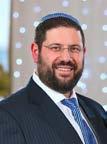
BY RABBI DR. TZVI HERSH WEINREB OU EXECUTIVE VICE PRESIDENT, EMERITUS
BY RABBI DR. TZVI HERSH WEINREB OU EXECUTIVE VICE PRESIDENT, EMERITUS
RABBI AVI BERMAN Executive Director, OU Israel
I love metaphors. An apt metaphor can help stimulate boundless creativity and can lead to a deeper and richer understanding of the concept being studied.
Take, for example, the metaphor of a tree as representing a human being. We find this metaphor in this week’s Torah portion, Shoftim, in the following verse:
Among the many beautiful elements of living in Medinat Yisrael, seeing the gathering of Jews from different backgrounds continues to inspire me. I find it particularly apparent when I see the continuation of diverse Jewish minhagim that originate from countries far and wide. Moreover, seeing the adoption of minhagim by those who have a different tradition is a clear example of the appreciation we have for the diverse minhagim that have upheld yiddishkeit over the centuries, regardless of their origin.
“When you besiege a city for many days to wage war against it, to seize it; do not destroy its tree, by swinging an ax against it; for from it you will eat, and you shall not cut it down; because man is a tree of the field, to come against you in a siege.”
(Deuteronomy 20:19)
approachability and beauty.
Considering the fact that my father is a descendant of the Vilna Gaon, it is somewhat surprising that my parents chose to give me an upsherin, known in Hebrew as “chalakah,” a haircutting ceremony that typically takes place when a boy turns three. In fact, in the years I spent as a boy in Brooklyn, I was hard pressed to find peers who had an upsherin when they were three.
declarative. Man is like a tree of the field. How? Let us count the ways.
For starters, King David himself in the very first chapter of Psalms compares the righteous person to a tree. “He is like a tree planted beside streams of water, which yields its fruit in season, whose foliage never fades, and whatever he does prospers.” Of all the metaphors available to the psalmist to paint the picture of the good man, the tree is the one he finds most fitting.
That said, some minhagim are tougher than others. I have yet to come across an Ashkenazi Jew who voluntarily takes on the Sefardi minhag of saying Selichot during the month of Elul. Similarly, I have yet to find a Sefardi Jew who is willing to give up kitniyot on Pesach. However, there are some minhagim that continue to become more widespread due to their
I am aware that there are alternative translations of the phrase under consideration, and that some render it as a question, “Is a tree of the field like a man?” But the literal meaning of the phrase is
In an effort to learn more about the minhag, I have uncovered many insights into the tradition and found a lot of beauty in the halachic practice. And therefore, when raising our seven boys, my wife and I decided to continue the minhag of upsherin, while adding a personal touch: on the day of their upsherin, each of our sons were taken to see Rav Mordechai Eliyahu zt”l who snipped the first cut of hair.
The rabbis also use the metaphor of the tree to capture the essence of one aspect of humanity. Thus, Rabbi Elazar ben Azariah would say, “He whose wisdom exceeds his deeds, to what can he be compared? To a tree whose branches are many but whose roots are few, so that any wind can come and uproot it and turn it over on its face... But he whose deeds exceed his wisdom, to what can he be compared? To a tree whose branches are few but whose roots are many, so that even if all the winds of the worlds beset him, they cannot move him from his place...” (Avot 3:22)
Goldstein ל"ז on his 30th yahrzeit, 3 Elul
Harriet Goldstein - Mark Grandsons, great-grandchildren and great-great-grandchildren on his 32nd yahrzeit, 3 Elul
The righteous person is like a tree beside a stream. The ethical man of action who puts his wisdom into practice has deep roots which give him confidence and security.
Over the years I have been asked about the minhag of upsherin. And while at times I might share some of the kabbalistic and halachic principles I have come across, my wife and I felt compelled to uphold the tradition of upsherin after seeing the impact it had on our boys. At just three years old, after meeting with Rav Mordechai Eliyahu zt”l, donning kippot, peyot and tzitzit, our boys represented Klal Yisrael.
There are so many other ways in which we resemble the tree. The tree regenerates, and the wind carries its seeds to great distances. So too, mankind is perpetuated
I can still remember how I felt seeing my oldest son Meir after his upsherin, taking in his haircut, his new beautiful kippah and tzitzit. While moments before Meir was
over the generations, and sometimes our descendants take root in corners of the earth that are far removed from us.
When I close my eyes and try to imagine the tree, two different images compete for my mind’s attention. One is the tree standing alone in the field, with long and drooping overhanging branches, providing shade for those who sit under it. So too, I can imagine human beings in my own life and in the history of humanity who stood apart and were misunderstood, yet provided physical or spiritual shelter to so many others.
The other image I have is of one tree, not alone, but together with many others constituting an impenetrable and mysterious forest. And so too, human beings band together into social groups which contain their own idiosyncrasies, which seem impenetrable to the outsider.
There is a lesson in the metaphor of the tree for that most important human process: education. This lesson is so well-expressed in the lines of the poet, Alexander Pope:
“’Tis education forms the common mind: Just as the twig is bent, the tree’s inclin’d.”
Trees left to their own devices grow wildly. Proper cultivation can direct their growth positively and productively. So too, humans benefit from proper “bending,” discipline and training.
And then there is the sad, but ultimate, connection between the tree and the human being. Trees wither, and trees die. They are subject to the forces of nature: fire, wind, deterioration and decay. Yes, we know of trees that have endured for





centuries, but even those lengthy life spans eventually come to an end.
I would like to end this brief contemplation of the many analogies between mankind and the trees with a passage from the ancient Greek poet, Aristophanes, which is so reminiscent of more than one passage in our High Holiday liturgy:
“Mankind, fleet of life, like tree leaves, weak creatures of clay, unsubstantial as shadows, wingless, ephemeral, wretched, mortal and dreamlike.”
But there is a happier connection between people and trees, and that is through the Torah, which is itself compared to a tree, the tree of life; “eitz chaim hi.”
Indeed, “Man is like the tree of the field,” withering or able to thrive, depending on one’s own life circumstances.
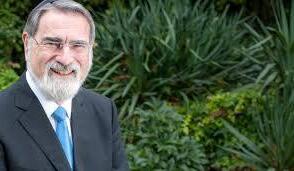
Covenant & Conversation
THOUGHTS ON THE WEEKLY PARSHA
RABBI LORD JONATHAN SACKS ZT"L
RABBI LORD JONATHAN SACKS ZT"L
FORMER CHIEF RABBI OF THE UNITED HEBREW CONGREGATIONS OF THE COMMONWEALTH
FORMER CHIEF RABBI OF THE UNITED HEBREW CONGREGATIONS OF THE COMMONWEALTH
May the learning of these Divrei Torah be תמשנ יוליעל
HaRav Ya'akov Zvi ben David Arieh zt"l
This summer, we’ve seen riots on the streets of London and Manchester on the one hand, Tripoli on the other. On the face of it there was nothing in common between them. In London the rioters were holding rocks. In Tripoli they were holding machine guns. In Libya they were rioting to remove a tyrant. In London they were rioting for clothes and flatscreen televisions. There was only one thing in common, namely that there were riots. They reminded us, as John Maynard Keynes once said, that civilisation is a thin and precarious crust. It can crumble easily and quickly.
The riots in both places, in their different ways, should make us think in a new way about the unique political project Moses was engaged in the parsha of Shoftim, and in the book of Deuteronomy as a whole. Why do crowds riot? The short answer
is, because they can. This year we have seen the extraordinary impact of smartphones, messaging systems and social network software: the last things, one might have thought, to bring about political change, but they have done so in one country after another in the Middle East – first Tunisia, then Egypt, then Libya, then Syria, and the reverberations will be with us for years to come. Similarly in Britain, though for quite different reasons, they have led to the worst, and strangest, riots in a generation.
What technology has made possible is instant crowds. Crowd behaviour is notoriously volatile and sweeps up many kinds of people in its vortex. The result has been that for a while, chaos has prevailed, because the police or the army has been caught unawares. The Torah describes a similar situation after the sin of the Golden Calf:
“Moses saw that the people were running wild and that Aaron had let them get out of control . . .” (Ex. 32:25)
Crowds create chaos. How then do you deal with crowds? In England, the reaction is a call for more police, zero tolerance, and tougher sentencing. In the Middle East, we do not yet know whether we are seeing
the birth of free societies or a replacement of the tyranny of a minority by the tyranny of the majority. However, it seems to be a shared assumption that the only way you stop people robbing one another or killing one another is by the use of force. That has been the nature of politics since the birth of civilization.
The argument was stated most clearly by Thomas Hobbes in the 17th century, in his political classic, Leviathan. Without the use of force, Hobbes said, we would be in a state of nature, a war of all against all in which life would be “nasty, brutish and short.” What we have witnessed in both Britain and the Middle East has been a vivid tutorial in Hobbesian politics. We have seen what a state of nature looks like.
What Moses was proposing in Devarim was fundamentally different. He assembled the people and told them, in so many words, that there would be social order in the new land they were about to inherit. But who would achieve it? Not Moses. Not Joshua. Not a government. Not a tyrant. Not a charismatic leader. Not the army. Not the police. Who would do it? “You,” said Moses. The maintenance of order in Deuteronomy is the responsibility of the entire people. That is what the covenant was about. That is what the Sages meant when they said kol yisrael arevin zeh bazeh, “All Israel are responsible for one another.” Responsibility in Judaism belongs to all of us and it cannot be delegated away.
We see this most clearly in this week’s parsha, in the law of the king.
When you enter the land the Lord your God is giving you and have taken possession of it and settled in it, and you say, “Let us set


Jerusalem Real Estate is My Business Eta: 054-723-3863
Amazing stand alone homes in OLD KATAMON, TALBIYA, BAKA, GERMAN COLONY
Near BAKA. 234 net sqm on one floor, roof terrace, 126 sqm. 2 underground parking spots, Shabbat elevator & storage.
Private home for sale in the GERMAN COLONY. 500 sqm living space. New construction. Call for more info
In GERMAN COLONY. 300 sqm plus 170 sqm registered garden. Plus parking & roof top terrace.
18.000,000 NIS
In SAN SIMON. Fantastic 150 sqm on one floor, 2 elevators and underground parking, terrace with amazing views and partial sukka. Great condition.
7,500,000 NIS
180 sqm Penthouse on an exclusive street in ARNONA 40 sqm balcony, registered parking. Very high standard finish.
9,800,000 NIS
In BAKA, 236 sqm on two floors, plus 80 sqm of outdoor space, high ceilings, authentic Jerusalem bldg with modern addition. 4/5 bedrooms, office/ or sitting room. Master suite on entrance level. Parking & storage.






Eta Morris Realty, Ltd. etamorrisrealestate@gmail.com Eta: 054-723-3863 etamorrisrealty.co.il
a king over us like all the nations around us,” be sure to appoint over you a king the Lord your God chooses . . . The king must not acquire great numbers of horses for himself . . . He must not take many wives . . . He must not accumulate large amounts of silver and gold. (Deut. 17:14-17)
Note the strange way the command is phrased. “When you say . . .” Is this an obligation or a permission? The people may call to have a king, “Like all the nations around us” – but the entire thrust of the Torah is that the Israelites were not to be like the other nations. To be holy means to be different, set apart. “The king must not...must not...must not.” The accumulation of prohibitions is a clear signal that the Torah sees the institution as fraught with danger. And so it was. The wisest of men, Solomon, fell into all three traps and broke all three laws. But that is not the end of the Torah’s warning. Even stronger words are to follow:
When he takes the throne of his kingdom, he is to write for himself on a scroll a copy of this Law . . . It is to be with him, and he is to read it all the days of his life so that he may learn to fear the Lord his God and follow carefully all the words of this law and these decrees and not consider himself better than his fellow Israelites... (Deut. 17:18-20)
Only one man is commanded in the Torah to be humble: the king.
This is not the place to go into the famous disagreement among the commentators as to whether appointing a king is a command or not. [1] Maimonides says it is an obligation. [2] Ibn Ezra says it is a permission. [3] Abarbanel says it is a concession. [4] Rabbeinu Bahya says it is a
punishment. The Israelites, a nation under the sovereignty of God, should never have sought a human leader. In the words of Avinu Malkeinu, “Ein lanu melech ela atah,” “We have no other king but You.”
The point is, however, that the Torah is as far removed as possible from the world of Hobbes, in which it is Leviathan – his name for absolute monarchy, the central power – who is responsible for keeping order. In a Hobbesian world, without strong government there is chaos. Kings or their equivalent are absolutely necessary.
Moses is articulating a quite different view of politics. Virtually every other thinker has defined politics as the use of power. Moses defines politics as the use of self-restraint. Politics, for Moses, is about the voice of God within the human heart. It is about the ability to hear the words, “Thou shalt not.” Politics in the Torah is not about the fear of the government. It is about the fear of God.
So radical is this political programme that it gave rise to a phenomenon unique in history. Not only did Jews keep Jewish law when they were in Israel, a sovereign state with government and power. They also kept Jewish law in exile for 2000 years, when they had no land, no power, no government, no army, and no police.
Rabbi Levi Yitzhak of Berdichev once said: “Master of the universe, in Russia there is a Czar, an army and a police force, but still in Russian houses you can find contraband goods. The Jewish people has no Czar, no army and no police force, but try finding bread in a Jewish home on Pesach!”
What Moses understood in a way that
has no parallel elsewhere is that there are only two ways of creating order: by power from the outside or self-restraint from within; either by the use of external force or by internalised knowledge of and commitment to the law.
How do you create such knowledge? By strong families and strong communities and schools that teach children the law, and by parents teaching their children that “when you sit in your house or when you walk by the way, when you live down and when you rise up.”
The result was that by the first century Josephus could write, “Should any one of our nation be asked about our laws, he will repeat them as readily as his own name. The result of our thorough education in our laws from the very dawn of intelligence is that they are, as it were, engraved on our souls.”
This is a view of politics we are in danger of losing, at least in Europe, as it loses its Judeo-Christian heritage. I have argued, in many of these essays and several of my books, that the only country today that retains a covenantal view of politics is the United States. It was there, in one of the great speeches of the nineteenth century, that Abraham Lincoln articulated the fundamental idea of covenant, that when there is “government of the people, by the people, for the people,” there is a new birth of freedom. When only police or armies stand between order and riots, freedom itself is at risk.

Visit www.RabbiSacks.org for more.


BY RABBI NACHMAN (NEIL) WINKLER FACULTY, OU ISRAEL CENTERL
The two p’rakim from which this week’s haftarah is taken, chapters 51 and 52 of Sefer Yishayahu, continue the overarching theme of consolation that fills the final 27 chapters of the book. Clearly, the very opening words of the haftarah sound a clarion call of comfort to the nation, as Hashem declares: “Anochi, Anochi –Hu Menachemchem”, “It is I, It is I, Who comforts you!”
Could there be a more powerful assurance to the people that they would soon be consoled? Is this not the perfect message to reassure Israel that a better future awaits them? It certainly seems so…but, perhaps, it is not.
A glance at the original text reveals that this divine cry to Israel is actually NOT the beginning of Hashem’s message – indeed, it is the 12th pasuk of the perek, NOT the first. The Malbim reminds us that some three verses earlier
Condolences to Shelley and the family of Dr. Tzvi Dwolatzky z”l (Haifa) on his untimely passing
it is the not-yet-consoled nation who cried out to G-d: “Uri, Uri, livshi oz…” –“Awaken, Awaken and don Your strength [Hashem]”, “Uri kiymei kedem” – “Awaken as in the past!” The Malbim clarifies the complaints of the people by explaining:
This is an argument Israel has with G-d. Realizing that Hashem’s salvation had not yet come for them, the nation contends that since G-d had performed many miracles for past generations, although they too were not deserving, why won’t He do so for them now??
The introductory statement of our haftarah is G-d’s response to the complaint. In effect, Hashem was challenging Israel with His words: “Do you think I’m no longer capable of saving you?” He asks, “Do you believe that I have changed from what I once was?” He challenges them. “Anochi, Anochi Hu Menachemchem!” –I am the SAME “I” that I always was. I DID not change because I DO not change! In effect, the Malbim contends, G-d is challenging Israel to realize that it is not HE who has changed at all…but it is THEY who have!! And, therefore, it is they who must return to what they once were.
As the Malbim sees it, the continuation of that pasuk underscores this explanation: “Mi aht….” “Who are you (Israel)” “vatir’i…”, “that you fear mortal man?” G-d complains that He no longer recognizes His chosen nation. Israel of today, he argues, is NOT like Israel of the past
- the nation that He took out of Egypt. That past generation feared no mortal, relying upon Hashem alone for their salvation, something you fail to do. And that is why G-d continues in the very next verse to explain why their generation had not yet been saved: “Vatishkach Hashem Osecha…” Hashem tells them that they had forgotten that G-d is their Creator, who formed the entire universe, and that is why they are terrified all day long, each day, from your oppressor.
The Malbim does not see Yishayahu’s prophecy as one of complete comfort and solace. That begins only in pasuk 17 with Hashem’s cry to the nation to arise because they have already drunken G-d’s “cup of wrath.” Before that, the people are being taught that salvation, and with that, comfort, must arrive with a change in their conduct and faith system. Hashem CAN do it all but Hashem will NOT do it all.
In conclusion, it would appear that the Malbim expects Israel to take the first step in returning to G-d before they would realize Yishayahu’s prophecy of G-d’s return to them. And, if so, he is sees in the prophet’s challenging, yet comforting message, a forerunner of the words spoken by the last of the prophets, Malachi, who shares Hashem’s words with the people (Sefer Malachi: 3;7):
Shuvu Eilai, v’Ashuva Aleichem” –“Return to Me…and I shall return to you!”
Rabbi Winkler’s popular Jewish History lectures can be viewed by visiting the OU Israel Video archive: https://www.ouisrael.org/video-l ibrary

NEW LISTING! Luxury residence Mishkenot Hanassi with facilities - Spacious 3 rooms, 120m, 2 succah terraces with beautiful views to the Knesset, doorman 24/7, large indoor pool, parking, storage.
MAYA - 054-6650184
NEW LISTING! Unique penthouse on a small lane of German Colony - 200m magnificent penthouse, private elevator, high ceilings, large terrace sukkah, surrounded by greenery, parking, very quiet.
NEW LISTING! San Simon - 105m apartment in a new building, 4 rooms, balcony, private parking & storage room, only 5,800,000 NIS. MAYA - 054-6650184
Unique luxurious 550m duplex Penthouse - Facing the magnificent Old City views, Talbieh, Authentic building, 100m terrace, shabbat elevator, parking FOR SERIOUS BUYERS ONLY. DEBORAH - 054-4804767
New in Baka - 180m new penthouse on one level, 5 rooms, large succah terrace, additional 40m storage, very high ceilings, shabbat elevator, parking, ready in 20 months. DEBORAH- 054-4804767
Small quiet lane of German Colony - New private house of 500m built, prime location, plot of 560m, 3 levels, possibility for a pool, high ceilings, full of character and light, views. DEBORAH - 054-4804767
New luxurious project close to Baka2,3,4 and 5 rooms, luxurious penthouse with terraces, gardens, magnificent design, private parking and storage.
JULIA - 054-7007436
On a landmark building on Ben Maimon St, Rechavia - 150m garden apartment with 35m private garden, high ceilings, lots of potential.
JULIA - 054-7007436
In a luxurious building in Talbieh with hotel facilities 200m on one level, large terrace facing the forest, pool, gym, spa, luxurious lobby, 2 parking spots, storage, ready to move in!

Rabbi Shalom
ROSNER
RAV KEHILLA, NOFEI HASHEMESH
Rav Kehilla, Nofei HaShemesh
MAGGID SHIUR, DAF YOMI, OU.ORG
Maggid Shiur, Daf Yomi, OU.org
ROSH BAIS MEDRASH ENGLISH SPEAKING
that was not plowed or planted? Typically, these restrictions are not required when offering sacrifices. What message can we derive from these specifications?
If a slain person be found… the elders of that city shall take a calf with which work has never been done, [and] that has never drawn a yoke, and the elders of that city shall bring the calf down to a rugged valley, which was neither tilled nor sown… (Devarim 21: 1-4).
The pesukim highlighted above explain the practice of “Egla Arufa”. This is a procedure that is conducted with a calf, once a dead body is discovered between two cities and the murderer is not known. The elders of the city closest to the corpse have to behead a calf “that has never worked” and it is to be brought to a valley “which was not toiled or sown”. Why does the Torah require that the animal that is to be taken not have labored? Additionally, why are we required to bring the animal to a location
Mazal Tov to Rabbi Aaron & Miriam Adler and family on the engagement of their son Chaim
Rashi suggests based on a Gemara in Sota (46) that it is symbolic of the murdered victim who can no longer be active and fruitful and engage in the performance of mitzvot.
SYMBOL OF LACK OF PRODUCTIVITY
Rav Benzion Firer (Hegyona Shel Torah), offers an alternative insightful explanation. Murder occurs in an environment where one is not engaged in productive work. In a society where people are busy plowing and engaged in constructive behavior, there is no time for such distractions. When people “kill time” too much, they can end up killing people.
The Torah dictates that one is to involve an animal that did not work and land that was not toiled to highlight that in fact this is what led to the murder. Because no one took the time to work with this animal or to toil the land, they had time to devise a murder. If society would utilize their time more constructively, they would not have time to even concoct a homicide.
GENERATION OF THE FLOOD
A similar idea is expressed by Rav Pam
in respect to the generation of the Flood (See Shalom Rav parshat Noach). The midrash explains that Noach was the first human to be born with separated fingers. Prior to Noach’s birth, all humans were created with webbed fingers. It is difficult for someone with webbed hands to hold a shovel or other tools needed to plow the land. Then, suddenly, a child is born with separate fingers, making it much easier to hold tools and to be able to more easily utilize tools. Quickly, it became apparent that it was a “game changer.”
Noach’s birth brought about unbelievable technological advancement in the world. Fingers! What an amazing creation! Suddenly, people could work the land more efficiently! With this newfound dexterity, tasks that seemed difficult and nearly impossible were accomplished quickly, efficiently, and with precision. Tasks that took hours could now be completed in minutes. Now they had so much free time and unfortunately did not use it productively.







It is interesting to note that the halachot of Egla Arufa only apply in Eretz Yisrael. It is one of the only mitzvot not related to working the land that applies only in Eretz Yisrael. Perhaps this is because in the diaspora, throughout the generations the other nations of the world enslaved us and we were not free to determine how to use our time. In Eretz Yisrael, where we govern, we are held accountable, since we can make the choice of how best to utilize our “free” time.
As the Yamim Noraim are approaching, let’s consider how best to ensure that we engage in productive activities. Leisure time is important, but we ought to make
sure that we use our time efficiently and productively. We can increase the time we learn Torah. On a daily or weekly basis. There are so many shiurim on-line and books in all languages, that make it easy for us to fill up our free time. There are also many meaningful chesed opportunities in which one can engage.
Let’s do our best to enhance the quality of our time so that we do not fill it with meaningless activities. As we bless the new moon each month, may we sanctify every moment of our lives and fill it with kedusha and productivity.
For Sale: 5 room apt. on Harav Berlin St.renovated, beautiful, quiet location, 3 exposures, 1st floor, master bedroom, 3 bathrooms and more...
| 0522810999 | Romanrealty1@012.net.il
SMILES
Parashat Shoftim commences with the obligation to establish courts of law. In this section, the Torah commands, “Tzedek tzedek tirdof lema’an tichyeh ve’yarashta et ha’aretz asher Hashem Elokecha noten lecha- Pursue perfect justice so that you will live and inherit the land that Hashem is giving to you.” (Devarim 16:20) The commentators are troubled by the command to pursue justice; would it not have been enough to state that one shall uphold justice?
Ramban explains that tzedek connotes the aspect of judgement in this world. He advises us to actively engage in judging ourselves so we can live fully, before Hashem comes and judges us against our will. Rav Gedalyah Eisner zt”l in Gedolei Mussar notes that when we acknowledge our deficiencies and take responsibility for our mistakes, we obviate Hashem’s strict judgement, there is then no need for Divine chastisement to inspire understanding. One should continuously pursue this internal honest judgement, particularly in the month of Elul.
The Tosher Rebbe zt”l in Avodat Avodah observes that Chazal understand the purpose of creation as, “beshvil Yisrael … beshvil haTorah,” so the Jewish people
Faculty, OU Israel Center
will keep the Torah. Accordingly, all that transpires in the world is dependent on our level of connection to Torah. Living with Torah values generates positivity and blessing in the world. This is one meaning of the verse, “veha’aretz natan levnei adam,” Hashem gave man the land, we can determine what happens here on earth by choosing goodness, honesty, harmony and Godliness.
The Tosher Rebbe explains the famous dictum a person should continually say, “B’shvili nivra ha’olam - the world was created for me,” in a similar vein. “Nivra” can be understood as expressing the present tense. One must understand that his “shevil,” the path he takes in life (a play on the word “beshvili”) can constantly impact the world. Every action one chooses can introduce either positive or negative energy. Therefore, the Torah commands us to ‘run’ after righteousness and good deeds to ensure that we continue to live and thrive in this land with Hashem’s goodness and grace.
Rosh Hashanah is the time when the world is conceived anew. As we prepare for this state of renewal, it is appropriate to be more conscious of our actions and try our best to bring nachat ruach to Hashem. The more one is attuned to the effect of his actions not only on himself, but on the world, the more one will live with a greater sense of awareness and responsibility to increase Hashem’s presence in the world.

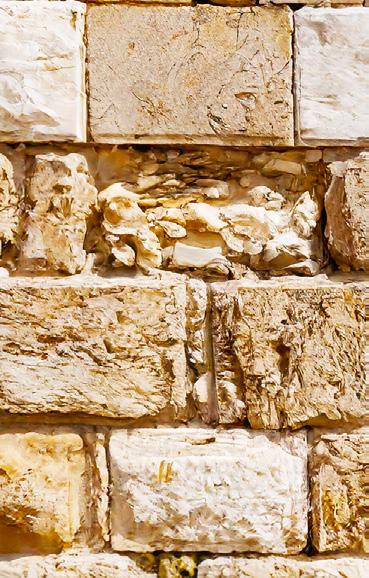
TALBIEH - Private Land:
TAMA 38: 4 Rms, 120 sqm (incl. MB en suite), balcony, Shabbat elevator, Old City view! Occupancy: February 2026.
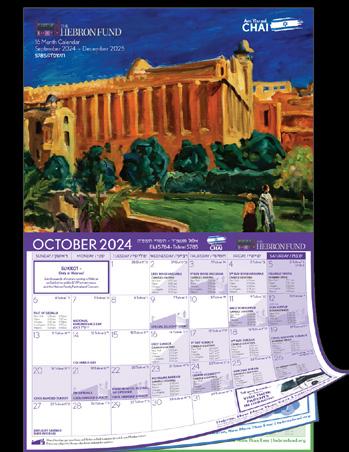
*Boutique building 550 sqm, 3 apartments.
SHAAREI CHESSED / RECHAVIA
*Duplex! 5 bdrms, 25 sqm kitchen, succah, shabbat elevator, 2 parking, storage.
*New 228 sqm duplex penthouse, 30 sqm succah, shabbat elevator, parking, view
NACHLAOT / CITY CENTER
*2 Rms, priv. entr. storage room, NIS 2,190,000
*2 One bedroom apartments, renovated, purchase together or separate, shabbos elevator, view!
OLD KATAMON
160 sqm 4 bdrms, garden, storage, parking
HAR NOF
entrally Located– 10 room duplex
garden (room for a pool), excellent condition


Executive Director, Camp HASC
Author of Baderech: Along the Path of Teshuva (Mosaica 2021)
Mischel EXECUTIVE DIRECTOR, CAMP HASC AUTHOR OF BADERECH: ALONG THE PATH OF TESHUVA (MOSAICA 2021)
Reb Tzvi Hersh HaKohen of Rimanov, zy’a, was a humble and unassuming tzadik, unique among the rebbes of his generation. He was orphaned as a young child and did not come from a ‘rebbishe’ lineage, but was chosen for the position solely due to his righteousness and light. Later in life, Reb Tzvi Hersch married off one of his children to the family of Rebbe Yisrael of Rizhin, zy’a. The custom at Rizhiner weddings was for Rebbe Yisrael to declare the family yichus lineage which traced directly back to the great Reb Dov Ber, Maggid of Mezritch. When the Rizhiner was done, the attendees at the simcha waited pensively to see how Reb Tzvi Hersch would respond. It was no secret that he’d come from humble origins.
With clarity and confidence, Reb Hersch declared, “My father was a simple tailor and as he was niftar when I was a child; sadly, I do not have many memories of him. One thing I do remember, though, is the fundamental rule of tailoring that he taught me: ‘It’s never too late to fix what you’ve sewn. If you sew the wrong stitch, you can always take it out and start again.’”
When the Rhizner heard the words of
his new mechutan, he began to cry, “Gevalt is your yichus great!”
Our sedra lays out the mitzvos associated with anointing a king in Israel, and details the limitations placed on his personal life so that he will maintain perspective while ascending the royal throne. He is not to acquire too many horses, excessive gold and silver, nor a multitude of wives; he is commanded to write and carry with him a personal sefer Torah, as a constant reminder, �
that his heart will not be haughty over his brothers” (17:15-20). Though specifically directed toward the king, this mitzvah is an important directive and reminder for all of us regarding a most basic element in our avodas Hashem: maintaining genuine humility and cultivating a sincere, deep respect for one another.
Parshas Shoftim also describes some of the circumstances of Klal Yisrael at war:
When you go out to war against your enemies, and you see horse and chariot, a people more numerous than you, you shall not be afraid of them, for Hashem is with you Who brought you up out of the Land of Egypt. (20:1)
The Kohen, representing the leadership of the Nation, addresses the klal :
, “Hear, O Israel, today you are approaching the battle against your enemies.”
� “Let your hearts not be faint; you shall not be afraid, and you shall not be alarmed, and you shall not be terrified because of them!”
This command of the Kohen inspires us to recognize that with the help of Hashem, victory is in our hands; we are to dig deep within ourselves and find faith and indomitable strength.
Rebbe Yehudah HaNassi ( Avos , 2:1) charges us to focus on three things so as not to fall into ‘the clutches’ of aveirah: עִדָ
— “Know what is above you…an eye that sees, an ear that hears, and that all your deeds are written in a book.” The Maggid of Mezeritch and Rav Chaim Volozhiner, the primary students of the Baal Shem Tov and Vilna Gaon, respectively, offer parallel, expansive interpretations of the notion of knowing what is ‘above us’, reading the phrase as saying, “Know that what is decreed Above is mimcha — from you.” That is, our efforts, intentions, thoughts and actions are impactful and ‘influence’ the Divine response above. What we do in the world ‘below’ is mirrored back to us from Above. If one experiences debilitating fear in facing the enemies of our People, it may be because he feels he lacks the merits or abilities to stand against them. He may also feel we are unworthy of victory due to being in an inadequate spiritual state: ‘Perhaps we are not deserving of God’s grace and mercy, Divine protection and assistance…’ The Ohr haChaim haKadosh tells

by Kupat Cholim
054-4258671 | NormanZ@shaham-orlan.co.il
us, ‘Do not let your spirit fall! What comes from Above is mimcha, “from you”! The
, the am rav, the “greatness of this people”, comes from us, our decision! Thus, the Torah commands us to make a resolute decision to not be fearful because of any aveiros you believe you may have!’
On Rosh Chodesh Elul, a sign would hang at the entrance of the Beis Medrash in Kelm, Lithuania: Achdus ha-avadim hi kiyum haMalchus, “The Kingdom is upheld by the unity of the servants.” At a time when personal introspection and growth is at the forefront of our mind, this message directs our teshuvah toward one another. We recognize that coronating HaKadosh Baruch Hu as our King is only possible when we are all together: Vayehi biYeshurun Melech, b’hitaseif rashei am, yachad shivtei Yisrael, “Then He became King in Yeshurun — when the heads of the People assembled, the tribes of Israel together.” (Devarim, 33:5)
The biggest threat to our national security is the ancient conceptzia of sinas chinam, being stuck in disunity, disrespect, intolerance and baseless hatred of our fellow brothers and sisters. It is demoralizing; it makes us think of ourselves as
unworthy. Achdus , unifying under our Father, our King, is the greatest spiritual protection for our soldiers and nation. It expresses our worthiness and helps us to feel our greatness and the strength of our emunah
This Shabbos marks the start of Chodesh Elul, our formal entry into the Yemei haTeshuvah, the auspicious days leading up to the New Year. There is much for us to fix in our personal and collective spiritual and cultural ‘wardrobe’ of thoughts, feelings and actions; ‘garments’ that desperately need mending in our society, community and Nation. Yet, when Hashem’s Kingdom is upheld by the unity of His servants, we will be victorious over our spiritual and physical enemies.
May this month be a new beginning for us all in deeply appreciating and respecting one another, and in serving Hashem,
together, from all our unique perspectives. May our teshuvah include a return to absolute faith in our personal, communal and national nikudos tovos: gevaldt is our yichus great! May we believe in ourselves, and may Hashem’s belief in us be openly revealed.
— as one, we will be victorious.


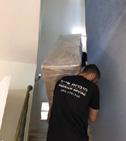





Discover Your Dream Home:
Experience a stunning 5-story villa in the prestigious Mishkafayim (Bnei Betcha section) neighborhood of Ramat Beit Shemesh Alef.






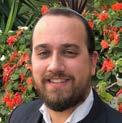
PAGE BY RABBI EZRA FRIEDMAN Director, The Gustave & Carol Jacobs Center for Kashrut Education Director, The Gustave & Carol Jacobs Center for Kashrut Education
The prohibition
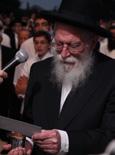
Our Sages teach us in the Talmud
Yerushalmi (Shekalim 2:5):
According to Biblical law, food that is completely kosher and cooked by a nonJew is permitted. However, our Sages decreed that such food, even when cooked in kosher utensils, is prohibited for consumption. This prohibition is known as bishul akum. In the coming weeks we will discuss the parameters of this rabbinic prohibition, including the reasons behind the decree, when it applies, and the practical halacha for modern industrial kashrut.
throughout the modern western world.
Rabban Shimon ben Gamliel says: One does not construct monuments for the graves of righteous people, as their words are their memorial.
maintain that the decree is based on this issue of closeness to non-Jews that could lead to intermarriage; this is the opinion of most early authorities. However, and others attribute a different reasoning to the prohibition of bishul akum, which is that non-Jews might mix non-kosher ingredients into the kosher food. In future articles we will discuss whether the parameters of bishul akum are based on both of these reasons or just one. However, it is clear from numerous sources that the danger of intermarriage is the main reason behind the prohibition (See Torat Habayit 3:7).
Rabban Shimon ben Gamliel relays that a great tzaddik does not need a large monument to be remembered. Rather, his words and teachings are so powerful that they uphold his legacy for generations to come. Rosh Chodesh Elul marked the fourth yahrzeit of my rebbe, Hagaon Harav Zalman Nechemia Goldberg zt”l. There is no better way to remember the Gadol Hador (the greatest Sage of the generation) than by relaying his words of Torah. This article focuses on bishul akum with regards to food cooked in a microwave, based on the teachings of Rav Zalman Nechemia zt”l.
Food is a very connecting element in every society. That is the basis behind the decree of bishul akum. Our Sages were very concerned about close relationships with non-Jews since intermarriage is a very severe transgression. The prohibition effectively limits Jews and gentiles dining with each other, although there is no specific prohibition against dining with a non-Jew per se. (See Rashi on Avodah Zara 31:b.)
Forbidding the non-Jew’s cooking would be enough to create an emotional distance such that families wouldn’t marry into each other.
Rabbeinu Tam (Tosfot Avodah Zara 38:a) and Rambam (Ma’achalot Asurot 17:9)
Microwave ovens cook by using electromagnetic waves to cause molecules of food to vibrate, creating heat that cooks the food from the inside outward. In the 1970’s, microwaves became available for residential use, and are now common
The decree is binding regardless of the reason
For the past few decades, rabbinic authorities have toiled to determine the halachic nature of microwave cooking, a subject that affects numerous questions in the realms of Shabbat and kashrut. Among these questions is whether bishul akum (the rabbinic decree prohibiting certain foods cooked by non-Jews in order to discourage social closeness and possible intermarriage) applies to food cooked by a non-Jew in a microwave. Different opinions have been presented by poskim on both sides of the argument.
THE LENIENT OPINION
Since the transgression of intermarriage was the primary concern behind our Sages’ decree, their goal was to powerfully discourage the possibility of developing emotional connections to non-Jews that could lead to intermarriage either in that generation or the next. Accordingly, early authorities discuss whether the prohibition of bishul akum still applies even in situations where intermarriage is not technically possible. For example, Rashba, in his responsa (1:248), examines the case of food cooked by a priest. Being that Catholic priests do not marry nor do they have children with whom to intermarry, is it permitted to eat food cooked by a priest even though the reason for bishul akum seemingly does not apply to
Zer Zahav (17th cent.), written long before the creation of microwave ovens, discusses the status of steam cooking and bishul akum, ruling leniently. One of his arguments is that bishul akum was only decreed on the types of cooking used in the times of our Sages; since steam cooking wasn’t invented yet, it is permitted to consume food which was steam-cooked by a non-Jew. Based on this logic, microwave cooking would certainly not be bishul akum (see Shulchan Melachim, p. 672). Another argument, based on the
opinion of Rashba and Ramban , is that only food cooked through the medium of fire is part of the decree of bishul akum. Yet another argument for leniency is that our Sages only applied their decree to commonly-used forms of cooking, meaning those which are used by most of the public. Although microwaves are common, their primary use is not for cooking raw food. People’s preference is to use ovens or stoves for actual cooking, while microwaves are largely relegated to heating up already cooked foods. Based on these principles, food cooked in a microwave would not be subject to the decree of bishul akum. Lenient authorities include Responsa Lehorot Natan, Responsa Rivevot Efraim, Rav Chaim Pinchas Sheinberg and others.
The OU Israel Gustave & Carol Jacobs Center for Kashrut Education was created to raise awareness and educate the public in all areas of kashrut. Rabbi Ezra Friedman, Deputy Rabbinic Administrator for OU Kosher Israel is the Center's director. him? Rashba answers that we have a rule regarding rabbinic decrees: even when the reason does not apply, the prohibition still stands. This is a necessary element in every rabbinic prohibition. Otherwise, Rashba explains, people could rationalize and find reasons why any decree should not apply in their particular situation. Accordingly, Rashba concludes that even food cooked by a Catholic priest has the prohibition of bishul akum. A similar ruling is made by Ramban (Avodah Zara 35:a) regarding non-Jewish royalty who, because of their stature, are prohibited from marrying Jews. He maintains that the fact that the non-Jews are royalty is irrelevant, and that the decree of bishul akum stands regardless of the reason behind it. Taz (YD 112:1) , Shach (YD 112:4) and Pri Megadim (YD 112:1) cite these rulings as axioms of the laws of bishul akum.
Other examples

gentiles, even if the ingredients and utensils are kosher.
The reason cited by most authorities is the risk of intermarriage.
Even in cases with virtually no risk of intermarriage, the food is still prohibited, including non-Jewish royalty, priests, young children, and non-Jews from distant lands.
would be stringent regarding bishul akum in a microwave based on his responsa regarding cooking on Shabbat. While discussing Rashi ‘s explanation in the Gemara that cooking in the sun on Shabbat is permitted because it’s not the normal way to cook, Rav Feinstein mentions that if microwaves (then a very rare phenomenon) were to become a common form of cooking, they too would be prohibited on Shabbat. (The reader should be aware that this discussion was only referring to the forbidden melacha of cooking on Shabbat, not to issues of electricity use.) Some learn from this that Rav Feinstein, were he alive today, would classify microwave cooking as subject to the prohibition of bishul akum.
Call or Whatsapp Rabbi Friedman at 050-200-4432 Meir Golan 077-2050015

052-2678749
golanechasim@gmail.com
Later authorities discuss similar cases where the logic behind bishul akum may not apply. Responsa Shevet Kehati (6:273) rules that even food cooked by a non-Jewish child is considered bishul akum, despite the fact that the chances of marriage seem remote. The same is true for food cooked in a faraway country where Jews cannot travel -- bishul akum still applies.
In summary:
Our Sages prohibited food cooked by
Other authorities are stringent and dispute the proofs of those who are lenient. Rav Shmuel Wosner and others claim that since many people use microwaves to cook raw food and think of it as a form of common cooking, it is certainly part of the prohibition. Regarding the argument that only cooking done by fire or a derivative of fire is considered bishul akum , the stringent opinion maintains that this principle was meant to exclude cold forms of cooking, such as salting and pickling, but that any hot type of cooking, whether using fire or not, is still prohibited. Other authorities claim that Rav Moshe Feinstein
Meir Golan
Old Katamon: 4-room apartment in a small and quiet street, 101 sqm, renovated, very bright and airy, master bedroom, Safe room (mamad), sukkah balcony, view, elevator, 3,400,000 NIS

RASCO: new 4 room apartment, 95m, master suite, elevator, balcony, very nice view 2,950,000 NIS
Old Katamon: 4-room apartment, 90 sqm, well split, bright, airy, sukkah balcony facing a magnificent panoramic view, 3 exp Shabbat elevator, parking, 3,290,000 NIS
ARNONA: 4-room apartment, 90m, beautifully renovated, master suite, balcony, storage, Shabbat elevator, private parking 3,250,000 NIS
Old Katamon: Spacious 3-room apartment in a very quiet street, 75 sqm, sukkah balcony facing a green and pastoral view, 3 exp. Shabbat elevator, private parking storeroom, 2,690,000 NIS
BAKA: New 4 room apartment in a new building, 88m, master suite, storage, Shabbat elevator, private parking, 3,950,000 NIS
RECHAVIA: 4-room apartment, 92m, Suka balcony, Shabbat elevator, fully accessible, private parking, storage 4,400,000 NIS
ARNONA: 5-room apartment, 120m, balcony, elevator, fully accessible, private parking, storage 4,350,000 NIS
BAKA: 5-room garden apartment, 140m, master suite, private parking, storage, full of light, airy, nice garden, 5,000,000 NIS
OLD KATAMON: Spacious new 5-room penthouse, 155m, terrace, great panoramic view, underfloor heating, Shabat elevator, 2 parking, + rental unit, 8,900,000 NIS
FOR RENT: BAKA: nice 4-room apartment, 82m, beautifully renovated, master suite, air conditioners, balcony, 2nd floor, elevator - fully accessible, storage, 8,000 NIS
Rav Zalman Nechemia evaluates the issue of bishul akum in a microwave through the foundations of cooking in halacha, pointing out that the Torah itself distinguishes between heat from fire and heat from something else in the laws of nega’im (impure skin afflictions) i.e. shechin (inflammation caused by a wound) vs. michva (a burn). Rav Zalman Nechemia explains Rashi as follows: The normal type of cooking is always through the medium of fire. Even if one were to cook in a novel fashion using fire, that wouldn’t mitigate the prohibitions of meat and milk or Shabbat. However, if we consider non-normal types of cooking (other than those the Torah categorized),
such as cooking in the sun, then once it is not common it is permitted on Shabbat. In essence, Rav Zalman Nechemia understands Rashi differently than Rav Moshe. According to Rav Zalman Nechemia, the normal type of cooking is always through fire, and the fact that an alternative form becomes normal is irrelevant. As such, he maintains that microwave cooking by a non-Jew is not bishul akum, since only fire and its derivatives are part of the decree. Even if a different type of cooking becomes common, it is too distant from the original prohibition.
Rav Zalman Nechemia Goldberg, was the ideal combination of a Torah giant and a pious individual. His depth and genius in Torah was simply beyond comprehension. At the same time, his simplicity and true modesty was apparent in his every action. Rav Zalman Nechemia dedicated his life to teaching in-depth, authentic Torah to anyone who wished to learn. He distanced himself from any type of politics or public dispute. He loved every Jew regardless of observance or political affiliation. Rav Zalman Nechemia’s presence is truly missed in Am Yisrael. What is left for us, his students, is to continue his legacy, his teachings, his ideals and his words of Torah. I had the tremendous zechut to have a close connection with him. May Am Yisrael continue his legacy for generations to come, zecher tzaddik livracha.








I can guarantee that if you qualify with the underwriting process I can get you more money than if you cash it in with the company. Please contact Moshe Russell at: Buymypolicy32@gmail.com


On Wednesday morning, Motti Weinberg, a dedicated United Hatzalah volunteer EMT, was dispatched to a residential apartment in Ashdod after United Hatzalah received an urgent call about a woman in active labor. Weinberg rushed to the scene and was the first medical responder to arrive. Finding the woman in the late stages of labor, Weinberg quickly set up a birth kit and went to work, ensuring both the mother and baby were safe throughout the delivery process. The birth proceeded smoothly, and both mother and child are in good health.
On a recent Tuesday morning in Jerusalem, parents were feeding their 6-month-old baby and introduced him to tahini for the first time. Within minutes, the baby developed a severe allergic reaction. The infant's parents immediately called emergency services, seeking urgent help.
United Hatzalah volunteer EMT Shalom Klein, alerted to the emergency through his proximity alert system, sprang into action as the first responder on the scene. Arriving promptly, Shalom was confronted with a distressing sight - a baby boy with swollen lips and tongue, struggling to breathe, and covered in a worrisome rash.
Recognizing the symptoms as indicative of an anaphylactic shock, the volunteer knew immediate intervention was crucial. Without hesitation, he administered a life-saving EpiPen injection, delivering a dose of epinephrine to counteract the severe allergic reaction. The powerful medication quickly took effect, and the infant's breathing became less labored. The swelling in the lips and tongue began to subside, providing much-needed relief to the child.
As the symptoms continued to recede, the EMT monitored his condition while awaiting the arrival of a mobile intensive care ambulance. Several minutes later, the ambulance team arrived and transported the infant to the nearest hospital for further treatment and observation.
This marked the second time in two days that Weinberg had delivered a baby under similar circumstances. Just the day before, he assisted in another home birth in the same neighborhood, successfully helping a different woman bring her child into the world. It should be noted that it is rare for an EMT to deliver a baby at home, as in most cases the delivery takes place in the hospital. Yet, not only did Weinberg deliver two babies in two days, but this was the third birth that he helped deliver this month!
Reflecting on the incident, Shalom emphasized the importance of having an EpiPen readily available. "It's a great thing I had an EpiPen in my medical kit," he stated. "An EpiPen can save a person's life within minutes and is a huge help for both EMTs and patients."

“It’s incredibly rewarding to help bring new life into the world,” said Weinberg after the latest birth. “Especially during this difficult period, taking part in such meaningful moments is priceless.”



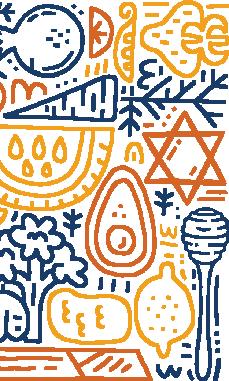






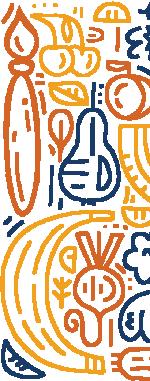




Torah Tidbits is proud to share a photo each week on the cover from our readers! It is an honor to showcase the immense talent from across the country. Send us your best photos and give us the opportunity to highlight your story! Everyone is invited to submit! (amateurs and professionals alike) Please email to aarong@ouisrael.org





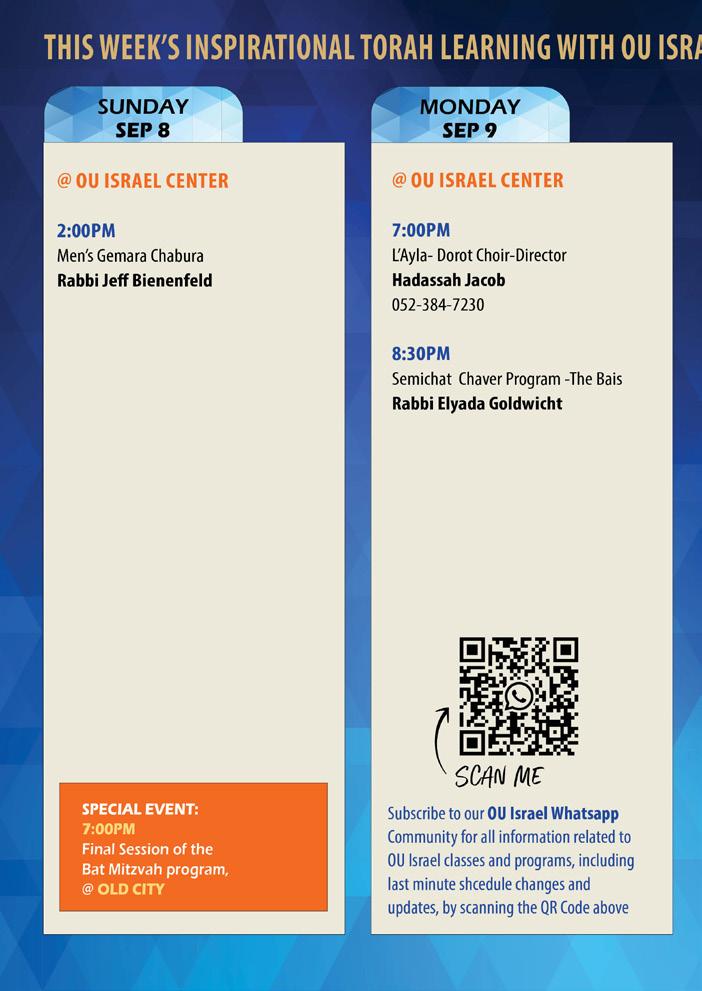

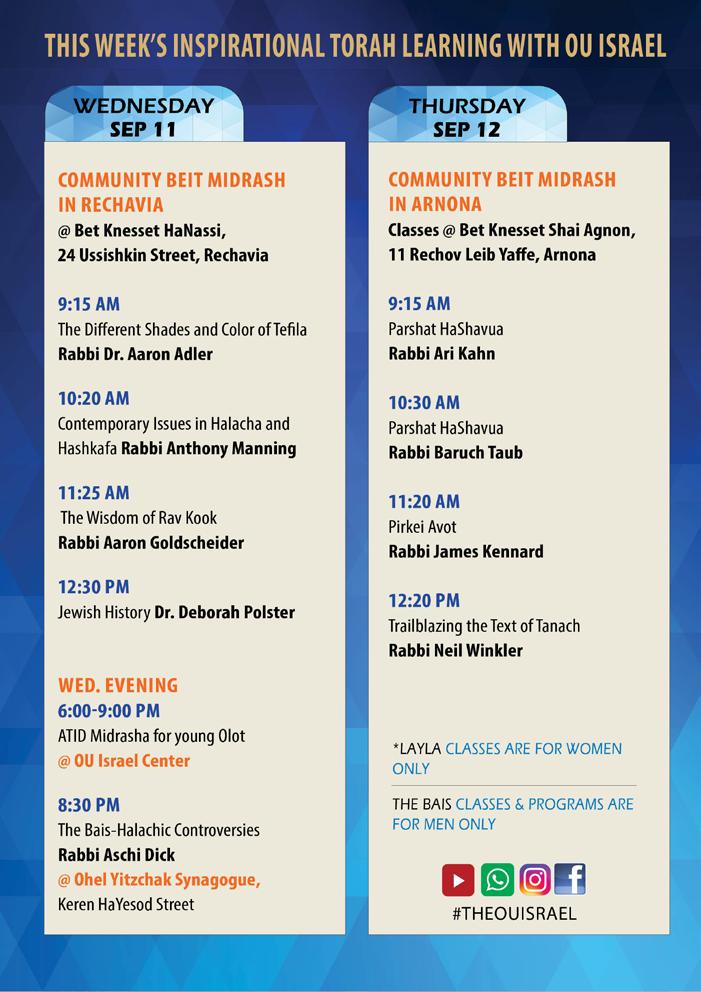


Before receiving the Torah at Mount Sinai, there were some Israelites that, of their own accord, already kept the entire
JLIC Israel’s goals include: building a warm and welcoming

not be openly present in this world. For if he was, the Jews’ free will would no -
low Hashem in everything. If his awe andpelled to follow him without having a real
JLIC at Tel Aviv University does amazinging us all about the torah we received at Mount Sinai. JLIC, I believe, helps us

Resumes Sept. 24th
WOMEN'S WRITING WORKSHOP AT THE OU ISRAEL CENTER
Tuesday
Monday mornings 10.30-12.30
GET FIT WHILE YOU SIT: Exercise for ladies Sundays 12:45-1:30pm at the OU Israel Center Sura Faecher 0504153239
Resumes Oct 15th 12:30-1:15pm Tzitzit tying at the OU Israel Center with Ruti - no experience needed Mondays at 1:30pm and Wednesdays at 12:00pm

simchat
BY RABBI SAM SHOR
Program Director, OU Israel Center
BY RABBI SAM SHOR PROGRAM DIRECTOR, OU ISRAEL CENTER
This past week we commemorated Rosh Chodesh Elul, and we began to sound the shofar each morning as we prepare emotionally and spiritually for the great days of renewal and transformation, the days of Rosh HaShana.
Our Sedra this week, begins with these familiar words:
Shoftim V’Shotrim Titein Lecha B’Chol Shaarecha- Judges and officers shall you place at all your gateways.
The Netivot Shalom, the Slonimer Rebbe zy’a offers a novel interpretation of our pasuk. Each Rosh Chodesh represents a new gateway, a new path to experience growth in our Avodat HaShem. So one might come to ask, what are the specific concepts and ideals we must work on during this month of Elul, during these days leading up to Rosh HaShana?
In Likutei Torah, Rebbe Shneur Zalman M’Liadi, zy”a, describes these days of Elul with the following parable. Throughout the year, a King sits in his royal palace and his many loyal subjects wait with trepidation for opportunities
Looking for a Jewish woman (familiar with High Holiday prayers) to sit next to an elderly woman on Rosh Hashana and Yom Kippur and assist her in following the tefilla
Location - Pinsker Shul | Will compensate Please call Sema 052-4586539
when the palace might be open for special occasions and celebrations, where the kingdom’s constituents might catch a glimpse of or receive a brief word of encouragement from their beloved King. But during this month of Elul, the king departs from the palace and visits the fields. There in the fields, the King is accessible, clearly present, and approachable as he interacts and mingles among all those who are in the field.
“During these days of Elul, do we simply carry on with the status quo, with business as usual, or do we see these days as an opportunity to greet and show honor to our King, even as He meets us on our proverbial home turf?”
The Lubavitcher Rebbe zy’a, elaborates further on this well known parable. Yes it may be true, that during these days of Elul, the melech is more clearly present among us, and may seem more accessible to us. However, the Rebbe asks the question, if the King shows up in the fields, do his constituents continue to plow and work the land, do they continue uninterrupted with their regular conduct, or do they pause, and recognize and acknowledge that indeed the King has graced us with his presence right here among us in the fields? During these days of Elul, do we simply carry on with the status quo,
with business as usual, or do we see these days as an opportunity to greet and show honor to our King, even as He meets us on our proverbial home turf?
Rabbi Shimon Gershon Rosenberg zt’l, known affectionately by the acronym Rav Shagar , offered a slightly different parable to understand these days leading up to Rosh HaShana. Rav Shagar suggests we imagine a chayal, who is standing at a bus stop on a Friday afternoon, he has been released from his base to go home and visit with his family for Shabbat. That soldier’s uniform looks a bit disheveled, his boots are full of dust, and he’s carrying an enormous bag, slung over his shoulder. The soldier is exhausted, but he cannot wait to get home and feel his parents’ embrace. Each one of us is like that soldier. Our clothes might be a bit wrinkled, we might need to shake the dust off of our shoes, we might be carrying around an enormous amount of “baggage,” but these days before Rosh HaShana , are our opportunity to overcome all those challenges and get ready to feel Hashem’s loving embrace.
Yehi Ratzon, may each of us be blessed to utilize these days of Elul to the best of our capability, to both shake off the proverbial dust and put down and unpack those heavy packages, and merit to experience these days as days of greater awareness and cognition of Hashem’s imminent presence in our lives, and to feel his loving embrace.



Dorot Rishonim #3, Jerusalem Tel: 02 563-7155


• Highest class boutique buildings with only 1 or 2 apartments per floor
• Five star hotel facilities including pool, spa, gym, concierge, synagogue, numerous dining options, maid service, 24/7 security and more
• Ideal location where Talbieh, Old Katamon and German Colony meet.
• Walking distance to Great Synagogue, Old City, Emek Refaim and First Station.
• Private land- Tabu
• Including 2 secure covered parking spots + private storage room.
• Prices starting at 15.7 m Shekels for exquisitely finished 182.5sqm apartment with 27sqm South-facing terrace with sunrise to sunset views over the pine trees of the landmarked ‘Moon Grove’





• Curtains & draperies
• Designer curtains
• Venetian & Woven wood blinds
• Blackout, Vertical, Roller, Roman & Pleated shades

www.ashleywilde.co.il


Orit Madar, Adv. Family Law and Mediation Divorce, Child support, Custody Inheritance & Wills
Yariv Madar, Adv. Bodily Injuries, Medical Malpractice Civil Litigation
10 Hillel St , Jerusalem | 36 Dam hamkabim st , Modiin 02-6255592, 050-3202909 Madar@netvision net il


BY RABBI MOSHE TARAGIN YISRAEL
BY RABBI MOSHE TARAGIN RAM, YESHIVAT HAR ETZION
Jewish sovereignty has been restored, yet our right to a sovereign state is still fiercely contested on the global stage. Even more striking is that, within our own people, many cannot discern the divine role in the restoration of Jewish sovereignty. While the world grapples with accepting our sovereignty, an even deeper struggle persists among us—where some are unable to recognize the hand of G-d in this unprecedented return to our Land.
To them, there are two main issues with recognizing a divine role in this restoration: Firstly, the current government and society are predominantly non-Halakhic. For those who cannot see Jewish nationalism as valid outside of Halakhic observance, it is difficult to accept this new form of Jewish sovereignty as divinely sanctioned. Second, this sovereignty differs from the Jewish governance described in the Torah, particularly in Parshat Shoftim and throughout Tanach. We once had a Jewish monarchy and continue to pray for the arrival of Moshiach ben Dovid, who will be a Jewish king. How, then, can a Jewish democracy be seen as a sign of the emerging messianic era when the Torah does not mention democracy? This omission causes
some to perceive our current sovereignty not as a continuation of prophetic history, but as a secular construct, seemingly detached from the messianic promises embedded in our tradition.
As it turns out, even Jewish monarchy was not the ideal form of Jewish political governance. Parshat Shoftim presents the nomination of a king and the laws governing a Jewish monarchy as an ideal.:
However, when Shmuel Hanavi accedes to the people’s request for a king, he is highly critical of their demand. Ideally, our gaze should be directed toward Heaven, seeking G-d as Supreme Monarch, rather than relying on a human intermediary. Shmuel reluctantly agrees to appoint a king but warns the people of the potential abuses of power that may arise. While Parshat Shoftim suggests human monarchy as an ideal, Shmuel portrays Jewish monarchy as a b’dieved, a less-than-ideal and potentially dangerous form of governance.
THE RAMBAM AND ABARBANEL
Based on this disparity, our Masorah contains two differing approaches to Jewish monarchy. The Rambam, who traced his lineage back to the House of David and could have potentially been a candidate for melech, viewed monarchy as the ideal form of governance. In fact, he dedicated one of the fourteen sections of the Mishneh Torah—Hilchot Melachim—to detailing the
various Halachot of a Jewish king.
In contrast, the Abarbanel—who, before his exile from Spain in 1492, served as a close advisor to the Spanish monarchy— was opposed to the concept, aligning with the straightforward reading of Sefer Shmuel. According to the Abarbanel, the Torah permits a less-than-ideal form of government as a concession to historical circumstances. As history evolves, new conditions arise in which the Jewish people require an imperfect and inadvisable form of governance. The Torah, by detailing the laws of kingship, allows for such a deviation from the ideal.
We are now at a more advanced juncture in history, where both the context and our needs have once again transformed. After 2,000 years of statelessness and powerlessness, Hashem restored self-rule to a nation still reeling from the horrifying aftermath of the greatest crime ever perpetrated against humanity. At this pivotal moment, Hashem sought to restore Jewish statehood and empower us to defend our people.
At this stage of history, Hashem chose democracy as His divine instrument. After millennia during which absolute monarchs abused their power and persecuted humanity, modern civilization evolved from totalitarian regimes into a system of democracy. Though not perfect, it represents the best form of government humanity has achieved. Hashem selected democracy as the means to restore Jewish sovereignty.
It is not the ideal, nor the ultimate monarchy of Moshiach for which we yearn and pray. Yet, in our current context, it is the best available system, and Hashem

has used it to initiate the long process of redeeming His people. Hashem accepts imperfect political systems when they are warranted by historical circumstances. The Torah “allows “ for a king. At this stage of history Hashem channeled the revival of Jewish self-rule through the institution of democracy.
Our redemption began with democracy; it will not end with democracy.
Not only did democracy serve as a divine instrument for the restoration of Jewish sovereignty, but this restoration was also deferred until democracy could completely evolve. As Rav Kook observed, monarchy was deemed too corrupt a system to initiate the process of Jewish redemption. Humanity has a regrettable history of corrupt and abusive monarchies, and our
people were no exception.
The kings of the First Mikdash period were notorious for their idolatry and cruelty, while those of the Second Mikdash era succumbed to civil strife and mass bloodshed. Hashem removed monarchy from us because we demonstrated an inability to govern under this system with justice and moral integrity. He withheld Jewish sovereignty until a more equitable and compassionate form of government could emerge. Only when humanity developed a more just and fair system—democracy— was the time right for the restoration of Jewish sovereignty.
Unrelated to Jewish sovereignty, the evolution of democracy also heralds a broader global redemption. Rav Kook envisioned geulah as a transformative process that would uplift not only the Jewish people but also act as a catalyst for the moral and spiritual elevation of all humanity. He saw modern innovations and societal advancements as integral steps toward universal redemption. The rise of science, the emergence of capitalism, and the development of democracy are all part of a grand divine design, guiding us toward the fulfillment of redemptive visions and the universal prosperity promised by our nevi’im. Democracy isn’t directly addressed in the Torah and certainly doesn’t represent a redemptive endpoint or goal. However, it stands as the most ideal form of government developed by humanity and was chosen by Hashem as a vehicle to restore our homeland and Jewish sovereignty. The advancement of democracy, along with other significant shifts in society and culture over the past centuries, are
part of the world’s movement towards a redemptive future.
We should deeply value democracy as the framework that has empowered us to reclaim sovereignty and build a society rooted in fairness and ethical standards, embodying our role as a beacon of moral integrity. Being the sole democracy in the Middle East is not just a point of pride; it is a testament to our unique commitment to democratic principles in a region where such values are rare.
The recent year of civil discord has starkly exposed the fragility of democracy, underscoring the urgent need to uphold a unifying narrative that bridges political divides and strengthens our collective resolve. Democracy is a precious asset that should never be taken for granted. To safeguard it, we must master the art of concession and focus on what unites us rather than what divides us.
This past year has revealed some of the inherent pitfalls of democracy. By granting every citizen an equal vote, democracy can be vulnerable to shifts in its foundational values. For instance, if significant numbers of individuals from differing cultural or religious backgrounds move to a country and form voting blocs, they could potentially influence the democratic process in ways that may erode local traditions and ethical norms. An example of this could be seen if a large influx of immigrants with different cultural practices were to sway policies that undermine the established cultural or religious identity of their new country.
Additionally, we have witnessed how the freedom of speech, a cornerstone of
is reluctant to send Yishmael away and Yitzchak seeks reconciliation with Yishmael and seeks to bless Esav.
democracy, can be weaponized to spread hatred and incite violence. Furthermore, the emphasis on individual expression in democracies can sometimes blur essential identity markers. Despite its many imperfections, democracy remains the most effective system humanity has crafted, and it is the form of governance Hashem chose to initiate our return to sovereignty. While it began with democracy, it is not destined to end with it.
6th Aliya (25:1-11) Avraham marries Keturah; they have 6 sons. All that Avraham has goes to Yitzchak; these are sent eastward with gifts. Avraham dies at age 175; he is buried by Yitzchak and Yishmael in Ma’arat Hamachpelah. Yitzchak is blessed by G-d: he lives in Beer L’chai Roi. The transition from Avraham to Yitzchak is complete. While G-d has been a silent partner in this parsha, here He completes the generational transfer – He blesses Yitzchak. The Jewish people will be Yitzchak and not Yishmael.
is to emphasize that the Torah is not as interested in the history of power as in the history of the covenant of G-d with the Jewish people. And that will be told at great length.
Enjoy beautiful panoramic view of Jerusalem from your swimming pool! -5.5 rooms, 144 sqm, garden apartment with private 277 sqm garden & swimming pool, double underground parking, great potential for re-designing and renovating. Exclusive! Itsik 055-4318147
The theme of this week’s haftorah echoes the theme in our parsha which mentions both the death of Sarah and Avraham.
As much as we strive to build a robust democratic state in Israel, we are first and foremost a Jewish state, and only secondarily a democratic one. Our goal is to establish a Jewish state grounded in democratic principles—equal rights and votes for all its citizens. If preserving the Jewish nature of our state requires us to make compromises in the nature or integrity of our democracy, these are sacrifices we should be prepared to make.
7th Aliya (25:12-18) The generations of Yishmael are enumerated. Yishmael dies. His descendants dwell from Egypt to Assyria. Yishmael’s story is brief. He has numerous and powerful offspring. The brevity
Democracy is not an all-or-nothing proposition. We can build a state based on democratic principles without it being a fully-fledged, unqualified democracy. We must create a foundation for democracy within our society while still addressing the unique needs of a Jewish state.

King David was an older man and a woman was assigned to him to serve him and provide warmth.
Adoniyahu, one of King David’s sons, began to prepare for ascension to his father’s throne. This was despite the fact that King David expressed his wishes that his son Shlomo succeed him.
4.5 room roof-top apartment + huge private open roof, outdoor kitchen & utility room, panoramic views, ideal for hosting your family & friends (Sukkot, holidays & events) Exclusive! Itsik 055-4318147
Adoniyahu convinces two very significant personalities - the High Priest and the commander of King David’s armies - to
BY RABBI CHANOCH YERES
R av, Beit Knesset Beit Yisrael, Yemin Moshe
When Avraham addresses the people of Cheit, trying to acquire a burial spot for his wife, he says “Ger V’Toshav Anochi Eimachem” (23:4) “A Stranger and a Resident am I with you”

This seems to be a contradiction. If one is a stranger than he is not a resident, if he is a resident than he is no longer a stranger. What did Avraham mean?

Shabbat Shalom
OU Press is honored to partner with Rabbi Moshe Taragin on his new volume in Hebrew regarding the recent war (‘Emunah B’toch Hahastara). This remarkable book is also available in English, “Dark Clouds Above, Faith Below”
10 rooms, 210/520 Sq.m. Green & pastoral location, view towards Judean Hills, Jerusalem Forest & Mt. Herzl. Building rights for high quality 4 units, great potential! Exclusive! 0536725042
The Magid of Dubno (Jacob ben Wolf Kranz 1741-1804) explains that Avraham watched how he spoke in this tense situation in order to, both, state his truth and be able to keep the peace -Shalom Bayit. Avraham said, on the one hand, “I am a Resident’ due to G-d’s promise to receive this Land and on the other hand, I still need your agreement to purchase a plot. In other words, Avraham implied “I am the resident” and you are the “strangers”, while they understood him as saying that “they” are the residents and Avraham is the stranger. The peace was kept, and Avraham remained true to his ideals.

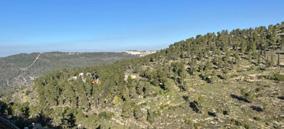
We are a young senior couple looking for a 1 bedroom furnished apartment in Jerusalem from December 2021-June 2022 0524419731
3 Moshe Hess St., Jerusalem 0778038511

BY REBBETZIN DR. ADINA SHMIDMAN INSIGHTS
As we discussed two weeks ago, if you listen carefully to the Haftorot during the coming weeks, you’ll hear familiar phrases. These words, spoken by Yeshayahu, were woven into our beloved Friday night Tefilah, Lecha Dodi. By using the words of Yeshayahu, Rabbi Shlomo HaLevi Alkabetz offered a message of faith and solace to the bereaved people of his time.
I would like to focus on a dialogue that begins just before the start of this week’s Haftorah, in Yeshayahu 51:9. The Jewish people, weary from their prolonged exile turn to Hashem and say to Him, יר�עִ
Awake, awake, clothe yourself with splendor. O arm of the LORD! Awake as in days of old, As in former ages! In our everyday language, the people are essentially saying, “Come on Hashem, where are You? Get up - You have the strength to save us, You saved us before - why not now? Hashem, You did this once before, why not now?”
Hashem’s response comes fifteen Pesukim later in our Haftorah (52:1) echoing the same words,
. The Posuk reads,
Awake, awake, O Zion! Clothe yourself in splendor; Put on your robes of majesty, Jerusalem, holy city! The Malbim connects these two

sets of יר�עִ יר�עִ and suggests that Hashem is answering the people’s request to awaken by turning it back on them: “You ask Me to wake up— it is you who must wake up!”
But the dialogue doesn’t end there. Like a parent who is trying to shake a child awake, Hashem tells His tired people, you have the ability, you have the strength within you. In the earlier Posuk, Bnei Yisrael refer to Hashem’s might as ז֙זִעִ, strength. When Hashem calls upon His people to awaken, He uses the word ךָזִעִ - your strength, ךָ ֵֽ תראֲפְּת, your splendor. Hashem is saying, “You possess the ability and power to respond to this wake-up call and rise.”
The themes of rising and awakening are recurring throughout this Haftorah, familiar to us from Lecha Dodi - ירר�עִתהָ
, Awaken yourself, awaken yourself and ירעִנֵתהָ
, Arise, shake off the dust.
Let the words of יר�עִ יר�עִ enter our souls as we begin Chodesh Elul after a year of horrific loss and pain. Through the comforting words of Yeshayahu, Hashem calls to us to awaken, providing encouragement and confidence that we will indeed experience more glorious times. May we be able to tap into our strength, our זִעִ and see the fulfillment of the words of the Navi Yeshayahu at the end of our Haftorah,
, How pleasant are the footsteps of the herald upon the mountains announcing peace, heralding good tidings, announcing salvation, saying unto Zion, “Your G-d has reigned!

Join us for an evening of celebration in support of The Michael Levin Base a non-profit organization that physically and emotionally helps Lone Soldiers and Lone B’not/Bnei Sheirut
Guests of Honor
Natan Sharansky & Gil Troy
Addressing the challenges of today facing Israel and the Jewish people
Volunteer Appreciation Award will be given to Michelle and Jeremy Fisher (Jerusalem/London)
Community Volunteer Appreciation Award will be given to Yocheved Radovsky
Lone Soldier and Lone Bat Sheirut Awards will be given to Gavriel Feigenbaum and Elli Klein
Monday, September 9th
Khan Theater 2 David Remez St Promptly at 6:00 PM
250 NIS DONOR, 360 NIS SUPPORTER, 500 NIS PATRON Light dairy buffet after program | Mehadrin Gush Etzion
DONATIONS:

Natan Sharansky
Natan Sharansky is an Israeli politican, human rights activist, and author He served as Chairman of the Executive for the Jewish Agency from June 2009 to August 2018, and currently serves as Chairman for the Insitute for the Study of Global Antisemitism and Policy, an American nonpartisan organization
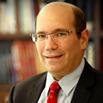
Troy
Gil Troy is a renowned American presidential historian, commentator, and professor at McGill University. With nine books to his name and editor of two, Troy offers valuable insights into forgotten history, putting current events in persepctive.
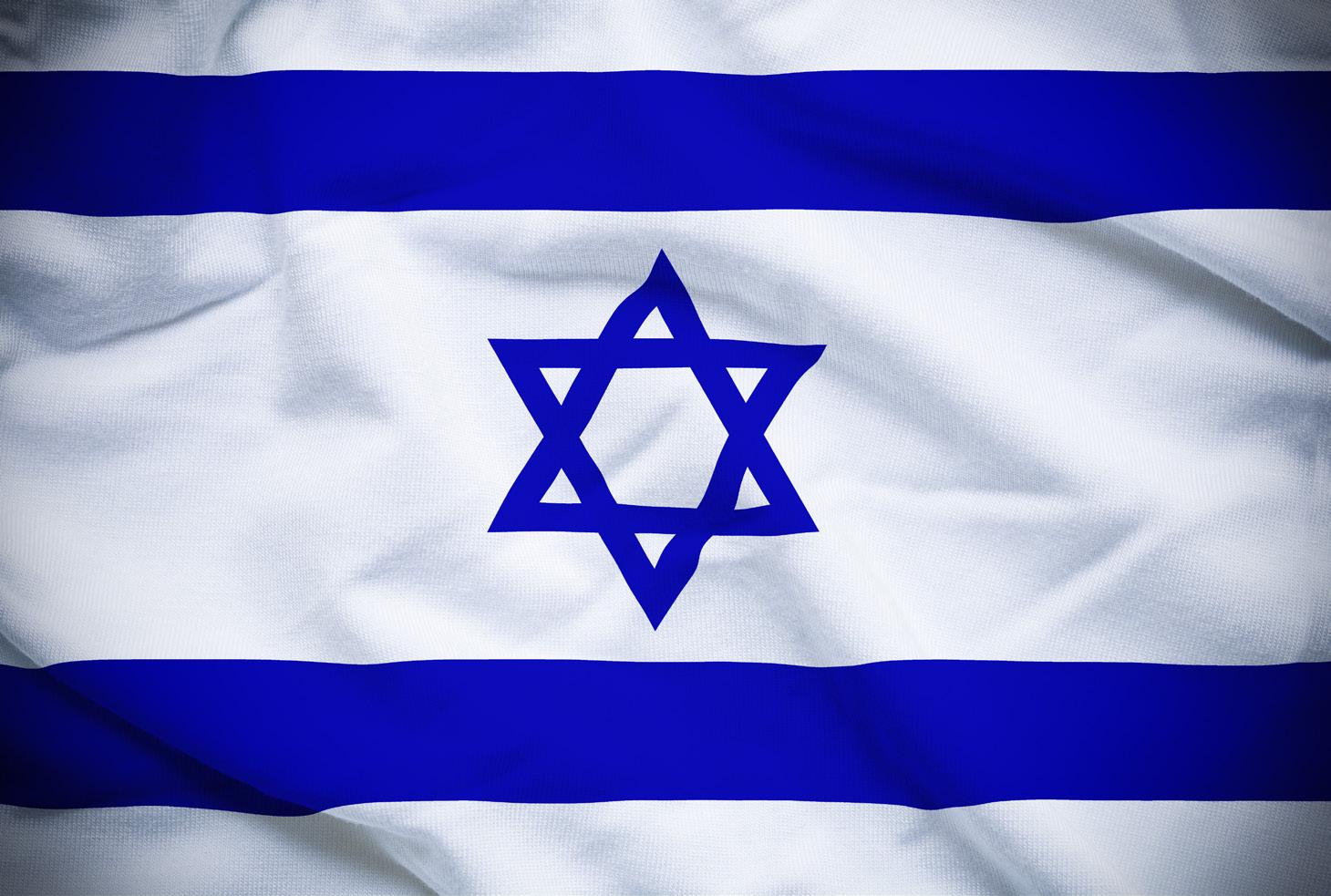
For more information: lizzie@thebase.org.il

RABBI AARON GOLDSCHEIDER
RABBI AARON GOLDSCHEIDER EDITOR, TORAH TIDBITS RAV, THE JERUSALEM SHUL BAKA, JERUSALEM
“You shall not erect for yourself a matzevah (stone pillar) which the Lord your God detests” (Deuteronomy 16:22). Instead, we are to serve God with a mizbeach (altar).1
But didn’t the Patriarchs erect matzevot at various points of their lives?
Rashi explained: “Although it was once beloved by God during the days of the Patriarchs, now He hates it, because [the Canaanites] adopted it for idolatry.” 2 In other words, the divine attitude was responsive to changing circumstances, and so the matzevah was traded in for the mizbeach.
Rav Avraham Yitzchak Hakohen Kook saw a significant spiritual lesson in this paradigm shift from matzevah to mizbeach. The former consisted of a single stone, while the latter was constructed out of many stones. 3 The single-stone matzevah symbolizes a monolithic approach to God, which was proper for the era of the forefathers. Each of the three served God in his own way: Avraham exemplified love, Yitzchak fear, and Yaakov truth. Each epitomized their individualized definition of
1. Rashi on Deuteronomy 16:22.
2. Ibid.
3. Talmud Yerushalmi, Avodah Zarah, 4:4.

Judaism and modeled it for their followers. The multi-stoned mizbeach , on the other hand, represents the multiplicity of legitimate paths to God. With the giving of the Torah, God now desired that the Jewish people serve Him symphonically rather than monotonically. Healthy variety became the norm, and regression to the old, exclusivist approach was ruled out:
“God desires that each and every person engage in Torah and mitzvot according to their capacity, so long as one unites with the collective and follows the Torah’s path. […] All of them should have intention for the sake of Heaven, by which the great name is magnified and sanctified. Therefore, He specifically desired the mizbeach of many stones that are all joined together.” 4
4. Midbar Shur, derush 9.
Each individual is to forge their own path to God, so long as all paths intersect on their way to God. This individualism within the collective and within the framework of Torah brings the greatest glory to God.
Rav Kook’s understanding can assist us in deciphering a puzzling episode where Moshe built a mizbeach and multiple matzevot. At the giving of the Torah, Moshe erected twelve separate matzevot and one mizbeach at the foot of the mountain: “... he rose early in the morning and built a mizbeach at the foot of the mountain, and twelve matzevot, for the twelve Israelite tribes” (Exodus 24:4). Immediately prior to this, the Jewish people had declared, “Everything that the Lord has spoken we will do” (Exodus 24:3). If the Jewish people had come together, why did he set in stone, as it were, the division into twelve individual tribes?
This was precisely the point. Moshe sought to concretize the notion that every tribe has different strengths—in Torah, commerce, warfare, and so on—but for the nation to excel physically and spiritually, everyone’s unique skills must be put in service of the people and God. The twelve matzevot must, in a sense, be part of a single mizbeach. 5
When the Jewish people took their first steps after being freed from the bondage of Egypt, the Midrash tells us that God opened twelve gates in the sea so that each tribe
could make its own crossing.6 Why was it so important for each tribe to have its own tunnel through the water? Because God does not want us all to be the same in our avodat Hashem (service of God). Rebbe Nachman of Breslov taught that each tribe offered its own special prayer to open its path through the sea.7 In light of this, some suggest that the twelve windows traditionally set in the walls of a synagogue remind us that there are many ways to serve God.
The theme of unity in multiplicity also emerges from Parashat Shofetim when viewed in its full sweep. It contains laws concerning the four types of leaders in Judaism: the king (ךָלָֽמָ), the judge (טפְּ��שֶׁ), the kohen (ןהָכִּ), and the prophet (אֲיבַּנֵ). Rav Kook noticed that if one combines the first letters of all four, one gets mishkan (ןכִּשֶׁמָ), God’s dwelling place. The multiplicity and range within our people fosters abundant blessings. We become the beneficiaries of this blessing when we wholeheartedly honor and admire each sector of our nation and every individual within Kelal Yisra’el. 8
6. Pirkei de-Rabbi Eliezer, ch. 42; Midrash Tanchuma, Beshalach, §10.
7. Likutei Moharan, I:9. 8. Kook, Sichot, 5:283.

Rabbi Goldscheider’s most recent OU Press Publication, “Torah United” on the weekly Parsha, can be ordered directly from Rabbi Goldscheider at Aarong@ouisrael.org at a special price for Torah Tidbits readers.

5. See ibid.
Yosef Ezriel ben Chaya Michal
Chana bat Bruriah
Benzion Simcha Mendel Ben Chana Rachel
Feyge Sara bas Chaya Peshe
Nechama Charna bat Feigel
Leah Naomi bat Tova
Pesach ben Sarah Frieda
Rina Feigle bat Rivka
Elianna Esther bat Channa Ada
Gemach for Chatan and Kalla: Meals for wedding and Sheva Brachot at cost
Eida Hachareidis Hechsher
Tel:052-633-1744
gadgadood@gmail.com

Eretz Yisrael and Aliyah in
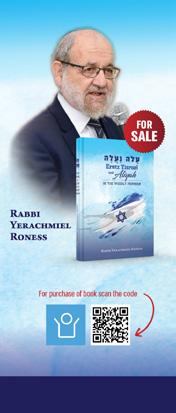

K o l l e l B o k e r
Rosh Kollel Rabbi Shimshon Nadel
S H I U R I M I N E N G L I S H on Monday and Wednesday mornings from 10:00 am - 12:00 pm
COMMENCING ROSH CHODESH ELUL, WEDNESDAY, SEPTEMBER 4TH
10:00 Contemporary Halacha 11:00 Coffee & Cake
11:15 Gemara Shiur: Masechet Berachot
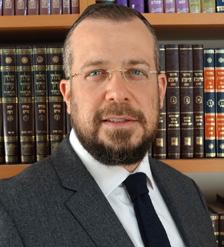
Beit Knesset Hovevei Zion, Hazvi Yisrael Synagogue, 14 Hovevei Street, Jerusalem Call or WhatsApp Murray Shore: 054-662-8001 or e-mail murrayfshore@gmail.com


RAV DANIEL MANN
Rav Daniel Mann
Question: Our father died on Friday and was buried on Sunday. I was told to listen to Havdala from a non- avel on Motzaei Shabbat , and some others were told to make Havdala after the funeral. Which approach is correct?
Answer: An onen (a close relative of a deceased prior to burial) is exempt from performing positive mitzvot (Berachot 17b) and should not perform them (Tosafot ad loc., based on Yerushalmi, Berachot 3:1; Shulchan Aruch, Orach Chayim 71:1). An onen must not violate Torah-level or Rabbinic negative commandments. It is not obvious whether certain situations relate to positive or negative mitzvot (see Pitchei Teshuva, Yoreh Deah 341:4,6 regarding eating without beracha or netillat yadayim, doing bedikat chametz).
There are opinions that we do not prevent an onen who will not take part in the

critical preparations for the burial from fulfilling mitzvot (see Shulchan Aruch ibid.). Many assume that in a place with a chevra kaddisha, the onen is not critically needed (see Panim Meirot II:150; Yalkut Yosef OC 71:16). Nevertheless, we instruct the standard onen not to do mitzvot.
Havdala accomplishes two things: 1. It expresses a proper perspective on the transition from Shabbat to weekdays; 2. It permits doing melacha after Shabbat (Shulchan Aruch, OC 299:1,10). #1 is a positive mitzva , from which an onen is exempt, but arguably removing the prohibition on melacha (#2) is a matter of the negative and should apply to an onen. Nevertheless, the Shulchan Aruch (YD 341:2) rules that an onen makes Havdala only after the burial. Da’at Torah (to YD 341:2) explains that we presume that the prohibition on melacha emerges from the requirement to make Havdala first. Therefore, if he is exempt from Havdala, the prohibition does not exist.
Some sources state that one does not make Havdala but that it remains prohibited to do melacha in matters not connected enough to the burial. For example, Chayim B’yad 125.81 says that
Eretz Hemdah, the Institute for Advanced Jewish Studies, Jerusalem, is headed by Rav Yosef Carmel and Rav Moshe Ehrenreich, founded by Rav Shaul Yisraeli, zt”l, to prepare rabbanim and dayanim to serve the National Religious community in the Israel and abroad. Ask the Rabbi is a joint venture of the OU, Eretz Hemdah, and OU Israel’s Torah Tidbits.

the mourners do not do kri’ah on their garments until after the burial and Havdala. While we do not accept this opinion, several poskim (see Shemirat Shabbat K’hilchata 64:26) recommend the compromise of reciting “Baruch hamavdil bein kodesh l’chol,” which always makes melacha permitted (see Shulchan Aruch and Rama, OC 299:10). This is best done without intention to thereby perform a “mini- mitzva ” of Havdala, but just to remove, if necessary,
“Navigating the halachic obligations of an onen involves balancing respect for the deceased with the complexities of religious duties during mourning.”
the prohibition of melacha.
It is not clear that hearing Havdala counts for an onen. The Rosh (Berachot 3:2) reasons that since an onen is exempt from Havdala, hearing it as an onen cannot fulfill the mitzva, and he will need to do it after the funeral, when the obligation begins. Yet, the Beit David (Shut II:164) posits it would count. The Birkei Yosef (YD 341:19) explains that an onen’s exemption may not erase the obligation, and this is strengthened by the opinions (see above) that perhaps he may perform the mitzva. When one heard from another and the question is whether to recite a potentially unnecessary Havdala
(l’vatala) after the burial, we must consider the rule of safek berachot l’hakel and also the prominent opinions (see Rosh ibid.) that one who was exempt from Havdala on Motzaei Shabbat does not “pick up” an obligation thereafter. Therefore, the consensus of poskim (see Yalkut Yosef ibid.; Divrei Sofrim YD 341:49; Shemirat Shabbat K’hilchata 64:(130); Mei’olam Ad Olam 6:48) is that in your case, you would not make Havdala after the funeral.
However, these poskim discussed b’di’eved – if one already heard Havdala from another with the intention of both that you fulfill the mitzva. According to the standard opinions (see Beit David, ibid.), an onen should not listen with intent to be yotzei because it fulfills the mitzva of Havdala. (It is a good question (see Shemirat Shabbat K’hilchata ibid.) why poskim do not recommend doing “early Havdala” (see Shulchan Aruch, OC 293:3).)
Therefore, we recommend waiting until after the funeral for Havdala. All of you brought merit to your father’s neshama by handling the halachic challenges as best as you knew.


“So, remind me what you’re looking for?”
When trying to set a person up, one of the first things you need to consider is what that person is looking for in a partner. However, the more preferences the person adds to their list of requirements, the harder it becomes to focus on what’s really important to them. You can get lost in lists of preferences - and end up overlooking relevant matches.
One useful tip to deal with this issue is separating ‘needs’ from ‘desires’. Differentiating between what must be in a match and what would be “nice to have”, already reduces the preferences list to a more precise version. Understand what criteria your candidate would consider essential, and what are the “deal-breakers”. What do they view as a necessity, without which a relationship simply would not be possible? What are their red lines, as in qualities that if exist - would indicate that there is no point in even suggesting a match?
Another important piece of advice is to not settle for a general definition of a preference, but rather understand exactly what they mean, what stands at the base of this requirement.
Take this conversation as an example:
“It’s important to me that she is at least 1.65 m tall” “Okay, why? What does height mean to you?” “I guess I want her to have a presence”
“Well, I know someone who is 1.55 m, but she has a big personality - she has a lot of presence”
“Ok, give me her phone number :)”
With a little digging, we are able to pin down what really is important to our candidate (someone with a presence) and don’t define height as a red line.
Another example of a conversation:
“I don’t want someone who works in high tech” “Why not?” “They always seem less family oriented to me.”
We see here that the necessity is a family oriented person. The title of the other person’s job shouldn’t determine your search, as it is certainly possible to find a high-tech worker who is also family oriented.
Our experienced Shagririm say it’s possible to sum up any person’s preference list into 3-5 words. This list would contain only the heart of what they are actually looking for. For example:
“Family-oriented, idealistic, calm”, “Torani, smart, mature, quiet”, “Friendly, Anglo, openminded, musical”, Or “Positive, ambitious, funny” etc.
Our Mazal Tov list is filled with couples that weren’t a 100% perfect match on paper: He was an inch shorter than she wanted, she was 2 years older than he was looking for. His army service isn’t what she envisioned, her
education is not what he expected. Baruch Hashem, these matches were made despite these discrepancies, thanks to Shagririm that knew their friends so well, that they knew to focus on what they were actually looking for. The idea is not to try and tick all the boxes - it’s to tick those that are crucial. Next time you talk to a friend you would like to set up, try the 3-5 word exercise. If you find them a potential match with the traits that are most important to them, they will most likely agree to give it a chance - even if not all the boxes are ticked. Who knows - maybe that inchtoo-short guy is her positive, ambitious and funny soulmate. :)


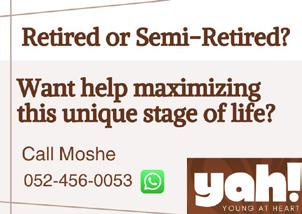



Last time we explained that there is a conceptual, medical and halachic difference between a fertilized egg inside the body as opposed to one outside of the body. While a fertilized egg outside of the body cannot become life without being implanted in the uterus, the fertilized egg inside the uterus is already on the continuum to become life. Of course, there are natural miscarriages, but generally without interference the egg inside the uterus will become life, or at least potentially can grow and develop into a baby.
Therefore, it is halachically permissible to destroy embryos in the clinic in a case when they are not needed. This could be when they are left over after a treatment and the couple do not have any intention to use them since they have children. It is also possible that after undergoing treatment the couple subsequently were able to conceive naturally and therefore do not want to revert back to fertility treatment. Sometimes the couple have separated, divorced and one of them dies.
Another type of situation is that the embryos were created with the express purpose of analyzing them for genetic abnormalities. A couple are both carriers of
a recessive genetic disorder or one of them carries a dominant genetic abnormality. A possible treatment is to undergo fertility treatment, create embryos in the laboratory and carry out a genetic scan. If the embryos are found to carry the unwanted trait they will not be used and only those that are free of the genetic problem will be used.
It is clear that those tainted embryos will probably either be destroyed or used in scientific research. In both cases they will not develop into life. And this is an integral element of the process of fertility treatment for genetic testing.
If we outlaw the destruction of unwanted embryos, we cannot perform such genetic testing and will end up with more children with genetic abnormalities, and more complex and challenged families.
If we do not permit destroying unneeded embryos, fertility clinics will be left with more and more of such fertilized eggs that will not be used and become a serious burden for such fertility facilities.
Destroying embryos does not reduce the sanctity of life and should not lead to more abortions and a cheapening of life. On the contrary, fertility treatment should be used to ensure that all couples have the possibility to have and raise healthy children.
Judaism has a beautiful nuanced view of the question of when does life begin. One that enables us to benefit from the incredible fertility advantages of our modern era, within a halachic framework.


















DR. ETHAN EISEN, PHD
many parents face is figuring successfully adapt their relationship a younger child into an adult relationship with an adult child.

As parents, we often think that as time goes on, our acquired experience ought to make parenting simpler. But what many parents find is that as their child gets older, the challenges of parenting become more complex. One aspect of this complexity that many parents raise is the shifting relationship with their child as the child grows through adolescence into early adulthood. During this time, the child is clearly going through an array of transitions, both externally and internally. As a result, the relationship between the child and his parents is changing, and parents may struggle as they navigate this shift.
Following the recent string of terrorist attacks, my son, 11, has become very anxious. I, of course, have also been affected by all the loss and trauma. I’m not sure how much or how little to share with him in general and specifically regarding my own emotional experience. For example, should I try not to cry and be sad around him? T.R.

When a soldier returns from the front lines for a few days, weeks, or even longer, he or his family often notice that he is not fully “there.” The soldier may be irritable and on edge, or, alternatively, withdrawn or subdued. He may feel overwhelmed by the pace of daily activities, and may have stretches of psychological absence when he daydreams or loses focus while at home, or any number of other indicators that he is not fully adjusted to regular civilian life.
especially tough in these circumstances. Chazal also recognized the challenges associated with quieting and refocusing one’s mind after a transition or major life event. The gemara in Eruvin (65a) teaches that many amora’im refrained from davening because they felt unable to settle their minds and focus with appropriate kavannah, including the following ruling which is codified in halacha (Rambam Hilchos
when responding to children under these circumstances.
Firstly, it’s important to give children a safe space to speak, meaning a space to express them selves in the way that is natural for them. Some children don’t have much of a reaction and others will cry, show anger and frustration. They may say things that you don’t agree with or challenge you. Giving them the space to do this is crucial.
Michal Silverstein, MS Dear T.R.
Thank you for asking this very relevant and timely question.
Adults as well as children are overwhelmed with emotions when they hear about a terrorist attack. When they become more frequent, the feeling of uncertainty and loss of control can create much anxiety. There are certain guidelines to keep in mind
“Sometimes the most impactful intervention is to help soldiers and their families realize that difficulty adjusting is a very normal experience, not a sign of severe psychological distress.”
One reason this transition confusing is that the duration to adulthood, for many people, form and may stretch over many The traditional Western value, it was never reality for many that a person turns 18 and becomes responsible for himself. He starts some money, lives on his own, pays way, and looks to get married, short order. All of these lifecycle would indicate that the child has an adult.
Next, when they ask questions, try to give them accurate information, answering only the questions they ask. Stay focused. It’s not necessary to elaborate or get sidetracked by politics or other similar situations. Explanations should be given in an age appropriate manner. Just like your rules are age appropriate your discussions should be as well. Having more detailed, graphic conversations is more appropriate with an 18 than a 10 year old.
The present war in Israel features unique qualities that make this struggle more likely. More than a few times I have heard soldiers on the phone with their wife, girlfriend, or parent arranging their schedule for when they will be driven back to war. The Israeli population’s close proximity to the combat theater means that there is no clear delineation between the battlefield and the home front.
Most parents understand that for a younger child, instruction, guidance, and oversight are intrinsic to their roles as parents. Parents also know that just because they utter “Baruch she’petarani“ that does not mean the end of their responsibilities toward their child. However, most parents recognize that at a certain point, their child becomes an adult, and as such, he is now responsible for himself and his own decisions. Ideally, the child and his parents form what we might call an “adult relationship.” The challenge that

For Sale:
25 Ben Maimon, 4 rooms, 113m, 2 bathrooms, porch, 1st floor, elevator, 6.2 million NIS
Smadar 050-3114040 // 02-642-4329 smadi_bida@walla.co.il
Soldiers leave Gaza on Thursday and come home for Shabbos, only to return to war on Sunday morning. Even for those who receive longer leave, there is a constant awareness of the war. One can understand how mentally separating from combat is
Tefillah 4:15): “Rabbi Elazar said: One who returns home from a journey should not pray for three days.” The rishonim and later poskim discuss at length how this halacha applies to present day laws of davening, but the underlying observation, that disruptive events can impact even the most spiritually attuned people for days at a time, provides a profound insight that speaks to the challenges of our soldiers and their families. Notably, this Talmudic recommendation of three days of rest has also been found by contemporary science. In a recent scientific article (Salonen et al., 2019), researchers found that a three-day rest period helps
It’s important to keep an eye out for both emotional and physical signs of distress. If your child looks sad, has crying spells, becomes fearful or angry or is experiencing changes in sleeping and eating patterns, he may need extra help processing the current state of events. Be aware of behavioral changes.
Regarding your own emotional state, it’s important to model emotions in front of your children. Seeing you express your feelings will allow your child to do the same. That being said, there is also a limit. You do not
But in today’s world, and especially frum communities, the markers hood are far less clear. Young typically not able to pay their own to some combination of advanced study, attending college or university, a higher cost of living. There emphasis on marriage, such men and women marry and have years before they are able to support their young family. This cated reality can make it difficult out the contours of an adult relationship between parents and their child.
The slow march toward independence means that there are not clear cations for where the child exists

soldiers’ stress hormones return to baseline after intense training exercises. Other research has found that stress hormones can be elevated for up to two weeks following intense military training (see Tait et al., 2022). We might speculate that the expected impact following actual combat exposure may be longer than these two weeks. It can also take time for the soldier’s family to readjust to his presence in the home where they had developed a routine in his absence.
There are clinical skills that can assist a soldier to improve his mindfulness and psychological presence when he returns home, and meeting with a mental health professional can be very helpful in this regard. But sometimes the soldier and his family are most bothered by the worry that their difficulty adjusting is not normal and reflects severe psychological distress. Soldiers may feel guilty and helpless that they are not able to be as active around the house or with their kids, and spouses may feel frustrated that instead of another helpful pair of hands, the returning soldier requires support to get through the day. In some cases, the most impactful intervention is to help them realize that this is a very normal experience, and to provide information about what to expect.
We can also take direction from Chazal who did not regard the inability to immediately return to regular psychological functioning as a moral failure, or even as something that had to be fixed. We do not find statements of guilt or self-criticism because of their unsettled minds. Instead, they recognized this reality as a fact of life, and they displayed patience in confronting
**FOR RENT! RECHAVIA 9 BEDROOMS 4 LEVELS HOUSE.
Experience luxury in Rechavia with this exquisite 400 m² house featuring 9 bedrooms, 7 bathrooms, and a private rooftop with an open pool. Enjoy seamless access with private elevator and a state-of-the-art kitchen equipped for a chef.
Elegant interiors and top-of-the-line furnishings make this home move-in ready. Additional perks include underground parking for two cars and a storage room.
Rent for $20,000/month with a minimum one-year lease. Contact us for a private video tour. Ruth Abrahami -

reality.
As this war continues, these challenges remain relevant for many thousands of soldiers and their families. We pray that with Hashem’s help and the community’s support, the families will be resilient through these difficult times.
TORAH TIDBITS CONTRIBUTOR

There shall not be among you one who practices divinations… who consults the dead. For anyone who does these things performs an abomination of G-d. It is because of these abominations that G-d drives out those nations from before you. You shall follow G-d with perfect faith (18:10-14).
The Rambam heads those who believe that human capacities to perform magic are mere delusions and have no real substance whatsoever. The Chinuch, whilst acknowledging this approach, does include other positions that consider that there exist individuals with spiritual sensitivities that have capacities to sense the beyond and even sometimes ‘get it right’. Yet right or wrong, the Torah forbids those avenues of inquiry as means of communicating with those who have passed on or for foretelling the future. Instead, the Torah reassures, people should have perfect faith that G-d will communicate what the people need to know through His chosen prophets. And if the neviim draw a blank and don’t get the desired vision at crucial moments as happened with Shaul HaMelech (Shmuel I 28:6), so be it. Accept that G-d does not wish to advise, take the hint, make the best-informed decision possible, and move on. Do not ask a medium
to bring up a soul from the dead to give advice, as he did.
What is striking is that the Torah terms all these practices as abominations, using the same word – toeiva – as it does for the forbidden sexual practices of incest and bestiality listed in Parashiot Achrei Mot and Kedoshim. And with the same consequences: with their carnal offenses “For the nations [of Canaan] did all those things and I spew them out” (Vayikra 20:23), and, here in their working with supernatural forces “It is because of these abominations that G-d drives out those nations from before you”. G-d declares that He will ensure that the Israelites drive out the Canaanites from the Land. However, incest is forbidden to all humanity under the Sheva Mitzvot B’nei Noach, the Seven Noachite Laws. But these mitzvot do not seem to include tuning into the supernatural for guidance and advice.
“Hope and self-determination are sacred; the true path lies in trusting G-d and facing life’s challenges with courage.”
In recognizing this difficulty, the Ramban does say that the words “because of these abominations G-d drives out those
nations” do not include “all these abominations”, as he recognizes that not all the practices of nations using this path of inquiry are fatal as passing children in fire (18:10); some of the methods listed appear to be fairly harmless.
However, it may be suggested that “these abominations” refer to what we today understand as common superstition being taken very seriously, and so include all the practices listed, for the following reason. The tapping into forces beyond normal human reach tends to declare what is going to happen, and thus put people at risk of life-destroying despair. Once people give up hope, they feel that things are outside their control, and they easily get to a stage where they are beyond help. It is the putting people at risk of descending into helplessness that is an abomination in the eyes of G-d. To paraphrase a mantra of R. Nahman of Breslov: “All life is a narrow bridge, but the most important thing is not to be afraid; tackle the challenges face on”.
Contrast with the words of the neviim as expounded in the Tanach, which generally have one thing in common. They warn of the likelihood of something terrible happening, but only unless people change their behavior. So however thunderous the words of Yirmiyahu, Amos, and Yechezkel, they always contained words of hope for those who would choose to behave in the right way. The words of the prophets including those enshrined in the Tanach for posterity emphasize the same message: there is always hope and help for those who actively seek to do the right thing. It is up to the individual to


Discover Beautiful Wooden Judaica find your style www.etz-ron.com
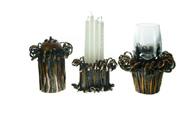
choose whether to seek the truth and do the right thing or not. There is the possibility of hope; rarely is there finality. It is that hope that gives people the courage and stamina to persist when things are not working out. In short, the individual has a hand in his or her own destiny. And it is an abomination to take that sense of self-determination away.
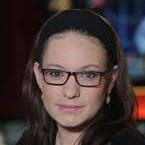

BY SIVAN RAHAV-MEIR
BY SIVAN RAHAV-MEIR
both joyful and sad.
Leah Melamed is a midwife at Soroka Hospital in Beersheva. I interviewed her in the delivery room at the beginning of the war, ten months ago, and now she reached out to me again with her observations.
Much excitement has surrounded Emunah Cohen and Neta Lax, the two fresh winners of the annual International Bible Quiz. Yesterday I interviewed them and heard their story.
Much excitement has surrounded Emunah Cohen and Neta Lax, the two fresh winners of the annual International Bible Quiz. Yesterday I interviewed them and heard their story.
“Since the outbreak of the war, being in the delivery room has been an emotionally draining experience. We’ve seen evacuees, women who survived the hell of October 7th, as well as women who were grieving the loss of family members. We midwives were overcome by a wave of emotions,
the first time?' Yet I simply forgot it. I thought afterwards that HaShem caused me to forget the answer in order to remind me that I do not know everything, that I am human and not perfect."
It turns out that they studied long hours together and were confident they would be the leading competitors. "We planned on winning together," Emunah revealed. "We thought both of us would answer every question correctly so that we would both be champions, tied for first place.
It turns out that they studied long hours together and were confident they would be the leading competitors. "We planned on winning together," Emunah revealed. "We thought both of us would answer every question correctly so that we would both be
But in the end Emunah won. "They made a big deal about our big hug after I lost," Neta said. "But it was the easiest thing to share in her happiness. Besides, we were just relieved that the competition was finally over."
In the course of the entire contest, Emunah made only one error. "I knew the answer to the question: 'When did King David cry for
the first time?' Yet I simply forgot it. I thought afterwards that HaShem caused me to forget the answer in order to remind me that I do not know everything, that I am human and not perfect."
"The more you learn," Neta said, "the easier it gets. When you learn a lot of Tanach (Bible) you simply see how everything connects to your life. I truly felt that what I learned accompanied me wherever I went. It made my heart feel good."
“Now, 10 months later, there is a different wave of births. I sense that there is something more in the air. The couples who are arriving decided to bring new life into the world at a time of crisis. This is a choice that, from a certain perspective, lacks all logic. How is it possible to think about bringing new lives into such a world?”
"The more you learn," Neta said, "the easier it gets. When you learn a lot of Tanach (Bible) you simply see how everything connects to your life. I truly felt that what I learned accompanied me wherever I went. It made my heart feel good."
In closing, Neta declared: "The two of us will continue to study the Tanach. There were parts of the Tanach that were not in the material covered by the quiz, and it's important for us to learn them too."
And Emunah had this recommendation: "Study the Bible for 5 minutes every day. Not for school, not for the Bible quiz, but just for how much fun it will be."
Ten months ago, I asked Leah from where she derives her strength, and she said that she drew inspiration from the Hebrew midwives in Egypt who had “reverence for God,” and who saw beyond the brutal decree of Pharaoh to throw all Jewish baby boys into the Nile. The midwives, she said, lived by one truth that exalted the value of life even at the price of endangering their own. They knew then and they also know today how to see growth from
In closing, Neta declared: "The two of us will continue to study the Tanach. There were parts of the Tanach that were not in the material covered by the quiz, and it's important for us to learn them too."
And Emunah had this recommendation: "Study the Bible for 5 minutes every day. Not for school, not for the Bible quiz, but just for how much fun it will be."


within challenge and crisis — even when others have difficulty believing that such growth will ever come.
“Today I can say that I derive strength from the mothers I witness giving birth, from these women who can see into the future with the same strength displayed by their forebears in ancient Egypt,” Leah wrote. “They remind me of Yocheved challenging Amram, her husband, who refused to bring other children into that world of Egyptian exile after Miriam and Aaron were born. She demanded that he rouse himself with newfound faith and have another child. The result was the birth of Moshe Rabbeinu.”
“In the midst of crisis, I draw strength from the mothers giving birth, who, like the Hebrew midwives in Egypt, see growth and hope even when others cannot.”
a brutal fate, with dozens murdered and kidnapped. Leah accompanied them throughout the delivery of their newborn daughter, Eli. Amit is a farmer and after planting again in the fields of Nir Oz, he left a sack of potatoes that he grew on the kibbutz next to Leah’s front door. “This was an expression of return to life, a first step of hope,” Leah wrote and shared that she broke down crying when she saw this gift. She also sent a picture of the Gore family. “I look at this photo every day in our hospital’s delivery room. Perhaps it will give strength to others too.”
Sivan Rahav-Meir is a media personality and lecturer. Married to Yedidya, the mother of five. Lives in Jerusalem, and formerly served as the World Mizrachi Shlicha to North America. Sivan lectures in Israel and overseas about the media, Judaism, Zionism and new media. She was voted by Globes newspaper as most popular female media personality in Israel and by the Jerusalem Post as one of the 50 most influential Jews in the world.
Leah went on to tell me about a wonderful couple from Kibbutz Nir Oz, Nofar and Amit Gore. Their kibbutz had suffered

In Jerusalem, Arnona- Elderly man requires male, 17-25 years old to push wheelchair to shul Shabbat morning. paid position | please call 077-950-0984




























































Connecting you with fellow Jews, Israel & the Jewish People!















n Install the new ISRAELB APP from the google play store to your phones (Dedicated in memory of Elchanan Yosef ben Chaim Eliezer)




































n Advertise on our new ISRAELB BUSINESS CENTER to gain exposure for your business















































n Use IsraelB to help you SELL OR RENT OUT YOUR PROPERTY




n Use IsraelB to ORGANIZE, PROMOTE AND PUBLICIZE your events and Smachot

n We can help you WRITE SPEECHES AND DIVREI TORAH for family events & Smachot











Subscribe to our IsraelB newsletter, follow us on Twitter (@IsraelBayit) and join our Facebook Page & Groups. (Links on IsraelB.org)

















IsraelB is your resource for jobs, events, community news, shiurim and much more!
CONTACT BENJY SINGER: benjysinger@israelb.org or 053-285-1526























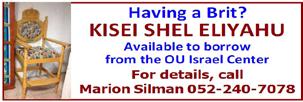


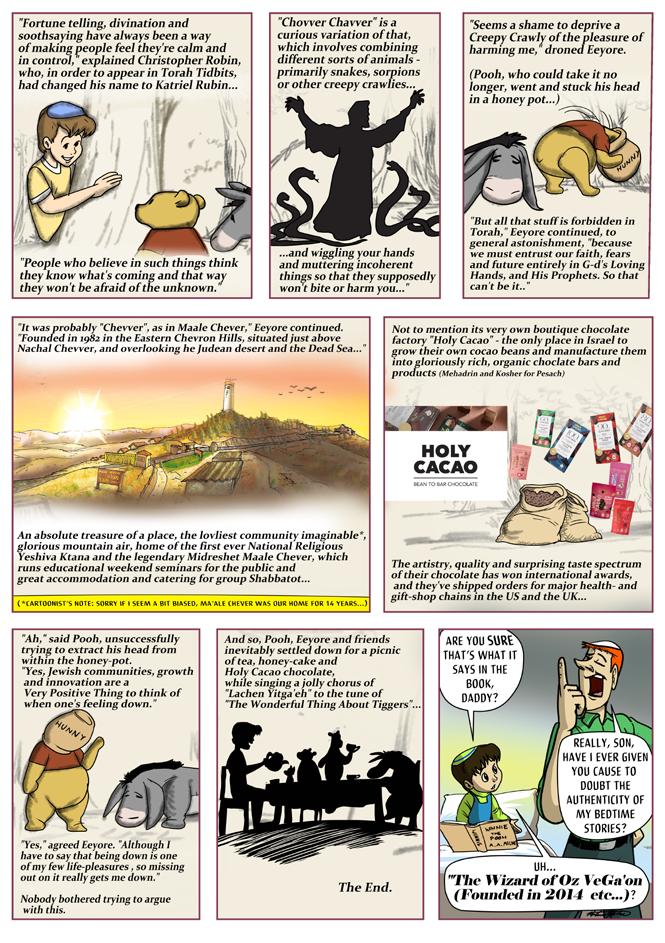


NOAM & TAMAR TROODLER
INCOMING RAANANA CHAPTER DIRECTORS
THE TORAH’S GUIDE TO QUALITY OVER QUANTITY
Shoftim, meaning “Judges,” is this week’s parasha, where Moshe continues to guide the Jewish people with the commandments from G-d. Among the topics covered are the appointment of judges and law enforcement, the prohibition against idolatry, the guidelines for selecting a king, the establishment of cities of refuge, and the rules of war.
One powerful message comes from Devarim (17:16-17), where it states:
‘You must not go back that way again.’ And he shall not have many wives, lest his heart go astray; nor shall he amass silver and gold to excess.”
Rashi explains that a king should only have what is necessary to fulfill his responsibilities. Sufficient horses for his chariots, enough wealth to pay his soldiers, and no more. Ibn Ezra adds that the king must not accumulate too many wives so that his desires do not lead him astray.
The lesson here is about the dangers of excess. The Torah is teaching us that when we focus too much on acquiring more—whether it’s wealth, power, or relationships—it can distract us from what truly matters and harm not only ourselves but those around us. Even the king, the most powerful person in the nation, must maintain balance and restraint. This sets an example for the entire Jewish people.
Moreover, he shall not keep many horses or send people back to Egypt to add to his horses, since Hashem has warned you,

In our lives, this idea of balance and moderation is crucial. We live in a world where it’s easy to get caught up in the pursuit of more; more success, more possessions, more experiences. But Shoftim reminds us that having more is not always better. Instead, we should focus on the quality of what we have and the purpose it serves in our lives.
For example, in our own lives, whether we’re balancing school, family, or social life, it’s easy to feel overwhelmed when we’re trying to do everything at once or accumulate more than we need. But if we
focus on what truly matters, whether it’s our relationships, our spiritual growth, or our contributions to our communities, we can find a deeper sense of contentment and purpose.
The message of Shoftim encourages us to be intentional with our choices, to seek quality over quantity, and to remember that balance is key to a meaningful life. Excess leads to chaos, but balance leads to peace and fulfillment.
Shabbat Shalom!

HULKOWER
This week marked Rosh Chodesh Elul and the start of a special period emphasizing individual and communal Teshuva. Appropriately, many of the parshiyot during this time highlight repentance.
Last week’s parsha, parshat Re’eh preceded Rosh Chodesh Elul and said to us
When reading this pasuk carefully we notice an inconsistency in the grammar. The word הָאֲר is singular, while the word
is plural. Who is Moshe addressing, an individual or a group?
Rav Yosef Faimer, a distinguished student of Rabbi Chaim of Volozhin, explains this contradiction with an idea that is important to remember as we approach Elul. Masechet Kedushin (40b) teaches that the world is judged based on the majority of our actions. If our mitzvot outweigh our aveirot, then the world’s overall judgment will be good. Therefore, each person
should believe that our every action could be the deciding factor that tips the scale of the world favorably.
Similarly, our pasuk starts off addressing each person in the singular guiding us to think through our actions and choose wisely. The pasuk then transitions to the plural to highlight that these choices impact whether the entire nation and world receive a blessing or a curse.
Let us always strive to see the bigger picture and continue to grow in Torah and mitzvot, for the sake of ourselves, our nation and our world!

A small Sefer Torah with its own Aron Kodesh is available to shiva houses or for any other necessary occasion on a temporary free-loan basis. If needed call Uri Hirsch 0545513173



Dovi Maisel VP of Operation

Bachor Medical Director
G R O U P
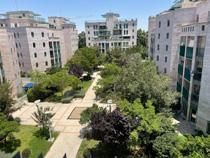
Range of 3-4 room apartments for sale in a boutique building, located in the heart of a pastoral Jerusalem atmosphere, and only a few minutes walk to Baka Close to everything - schools, synagogues, cultural and entertainment centers and of course the Old City
The building has an elevator , balconies, storage and private parking
PRICES START AT 3,000,000 NIS
Alex Losky’s office : 02-6235595 ,0543080406 ,mail: losky@netvision net il







